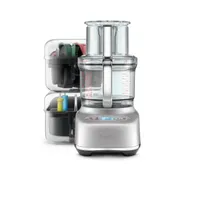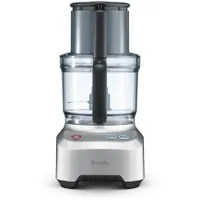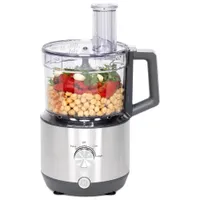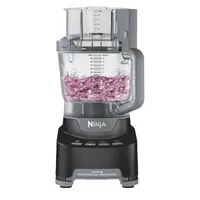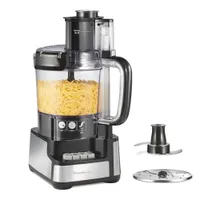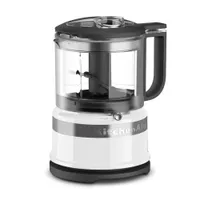Best food processors: expert tested and rated
Tried and tested by us.
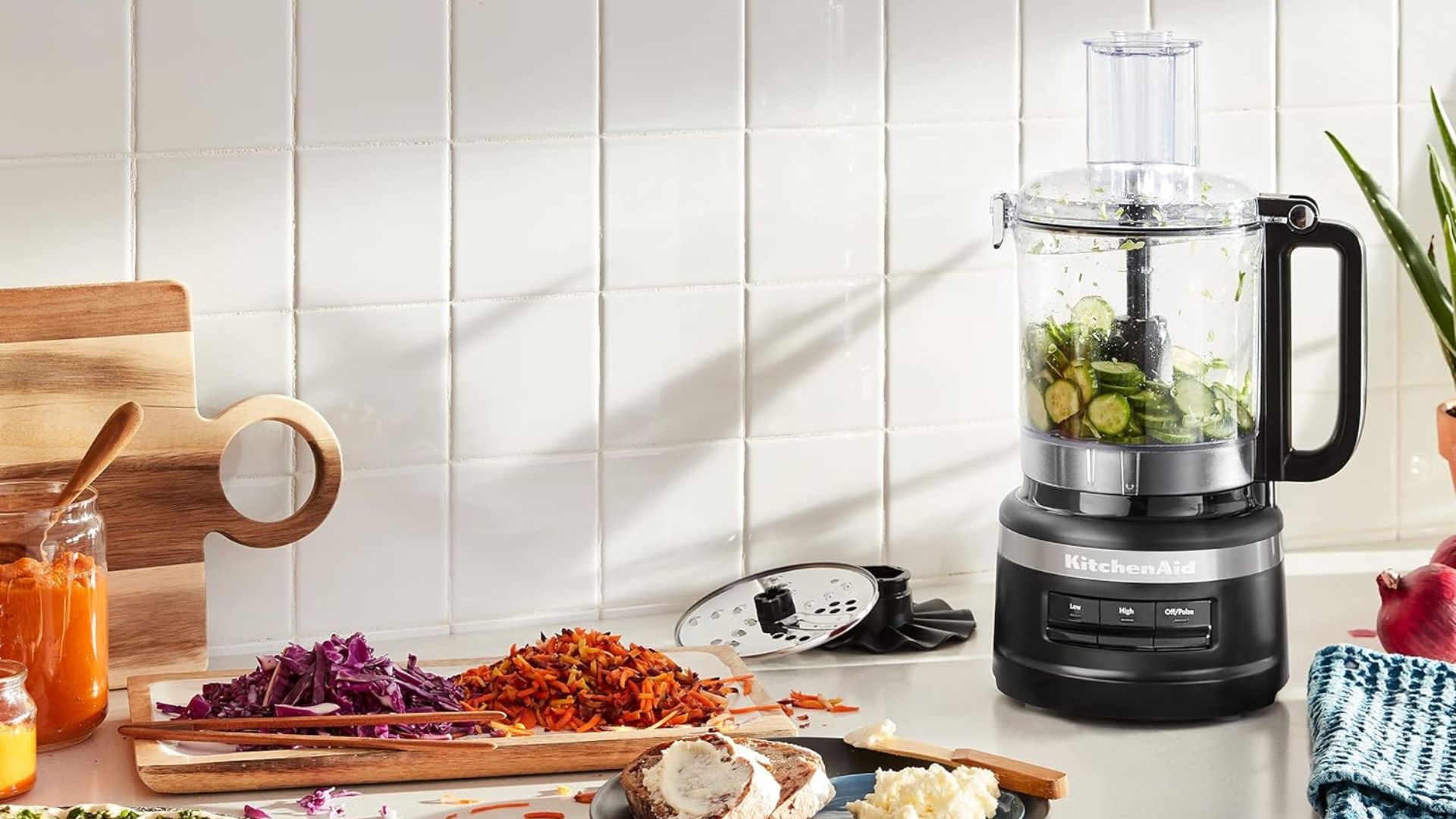
Here at Tom’s Guide our expert editors are committed to bringing you the best news, reviews and guides to help you stay informed and ahead of the curve!
You are now subscribed
Your newsletter sign-up was successful
Want to add more newsletters?

Daily (Mon-Sun)
Tom's Guide Daily
Sign up to get the latest updates on all of your favorite content! From cutting-edge tech news and the hottest streaming buzz to unbeatable deals on the best products and in-depth reviews, we’ve got you covered.

Weekly on Thursday
Tom's AI Guide
Be AI savvy with your weekly newsletter summing up all the biggest AI news you need to know. Plus, analysis from our AI editor and tips on how to use the latest AI tools!

Weekly on Friday
Tom's iGuide
Unlock the vast world of Apple news straight to your inbox. With coverage on everything from exciting product launches to essential software updates, this is your go-to source for the latest updates on all the best Apple content.

Weekly on Monday
Tom's Streaming Guide
Our weekly newsletter is expertly crafted to immerse you in the world of streaming. Stay updated on the latest releases and our top recommendations across your favorite streaming platforms.
Join the club
Get full access to premium articles, exclusive features and a growing list of member rewards.
Once you've switched to using a food processor, you'll never go back. Remember when you used to chop onions by hand? Remember when you grated cheese and carrots using a box grater? Those were dark times, but with the best food processor, you can leave that all behind.
Keeping one of these nifty multitaskers on your kitchen counter will unlock a new level of efficiency that will have you feeling like a chef in a professional kitchen. Food prep is quick and efficient, washing up is painless, and dinner is, crucially, on the table a lot faster.
Our top pick looks like an older model, but the Cuisinart 14 Cup has genuine icon status in the cooking world. You'll see it on celeb and chef countertops alike, despite a huge range of more modern and attractive options.
On a budget? The Hamilton Beach Bowl Scraper 10 Cup will get the job done, and we loved its scraper attachment which will clear down the side of the bowl without manual intervention.
Quick List
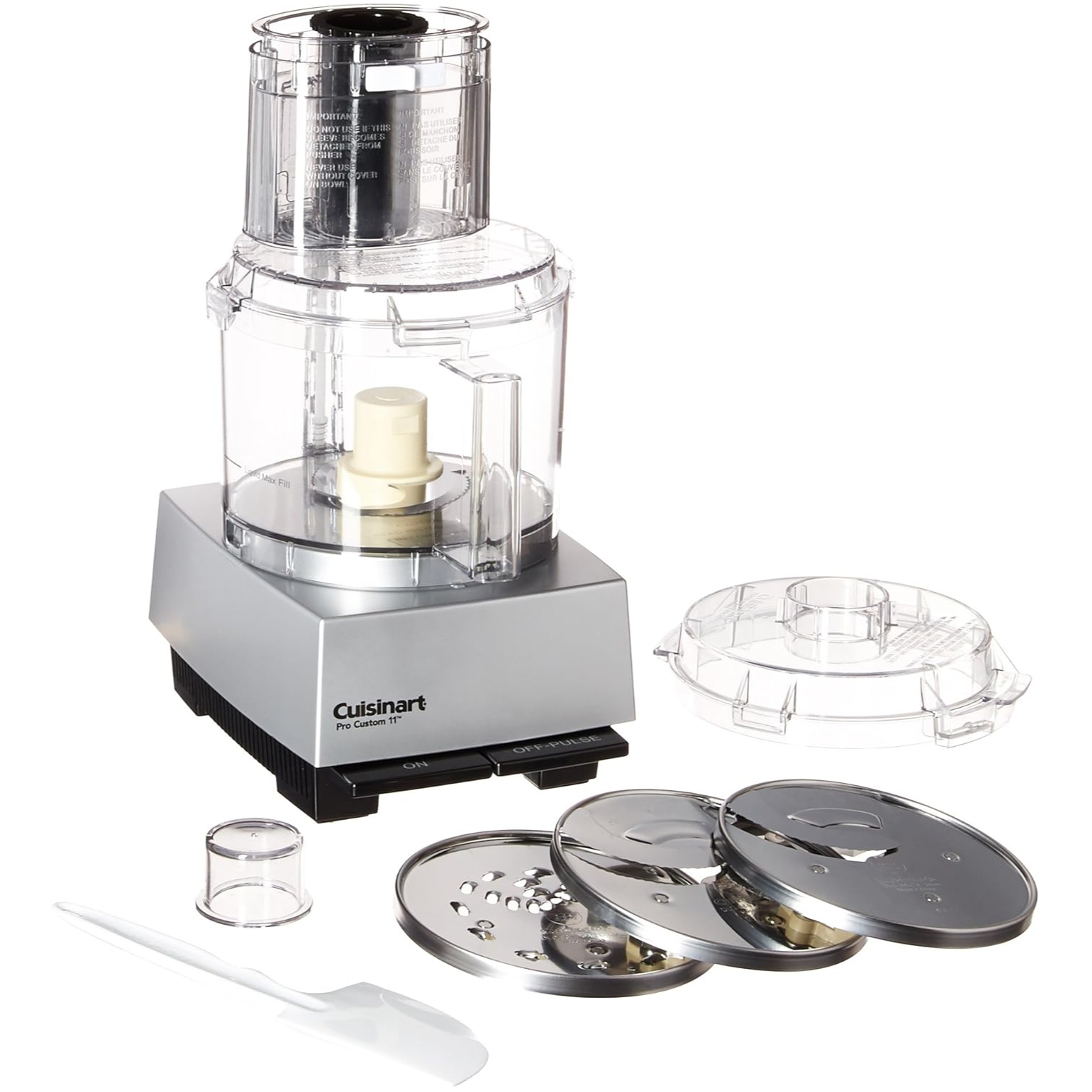
With a generous capacity and numerous attachments, we weren't expecting this food processor to be so quiet during testing. It's quite heavy but the large feeding tube made chopping extra speedy.
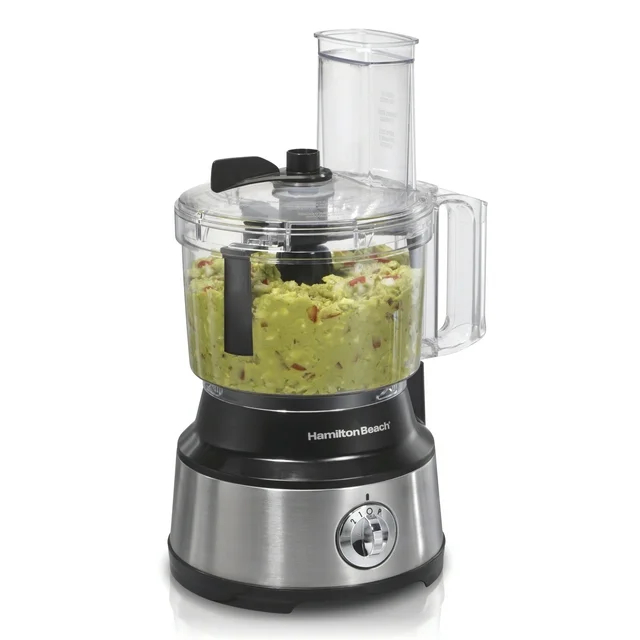
Powerful and affordable, the Hamilton Beach Bowl Scraper 10 Cup Food Processor chopped onion in seconds and handled dough without any problems.
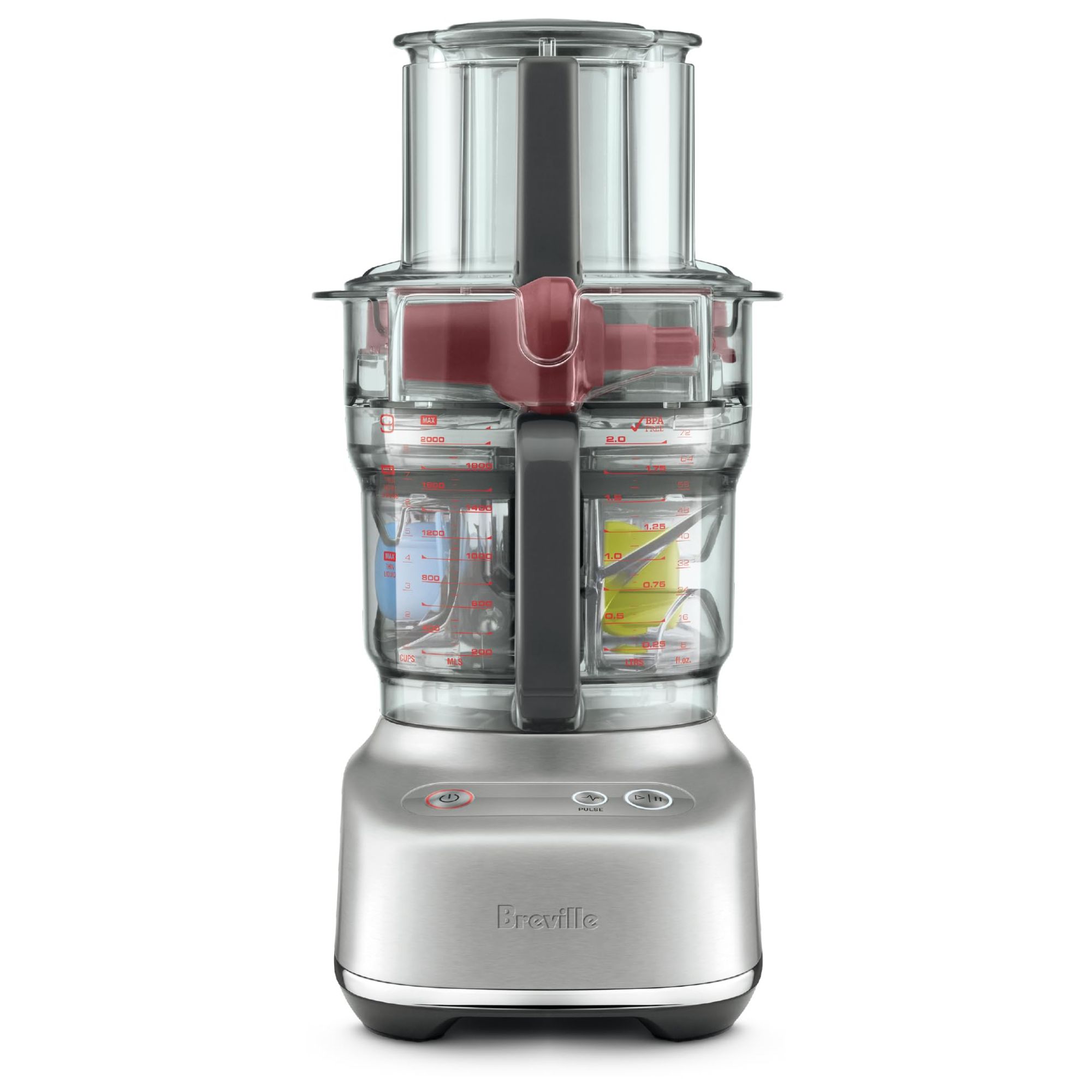
The Breville Paradice 9 is a near-perfect food processor, has attachments for all sorts of functions, and all of them fit neatly for storage.
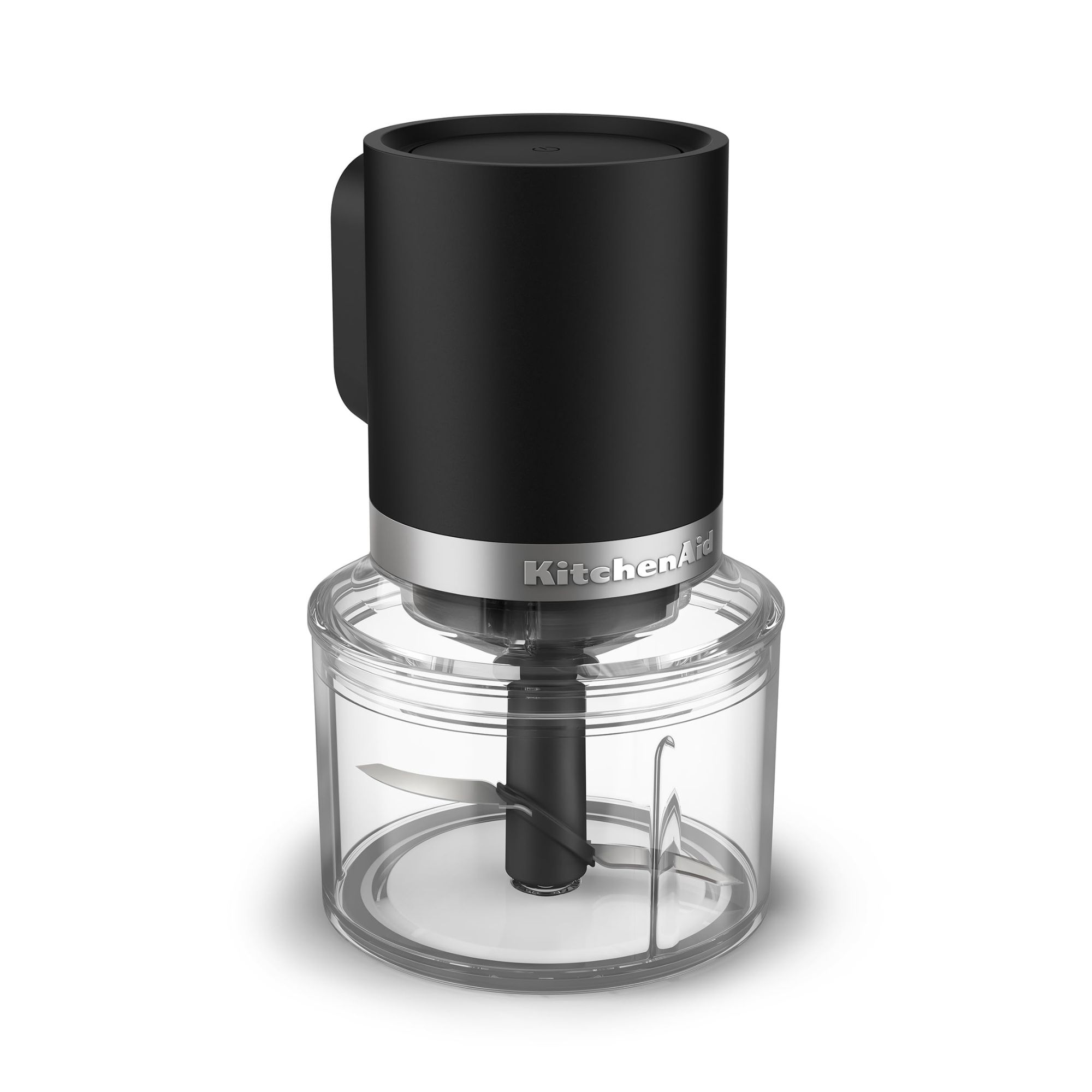
This lightweight and cordless option is ideal for quick chopping jobs when grilling outside or when cooking in a smaller kitchen. It made great dips and chopped relatively evenly given its tiny dimensions.
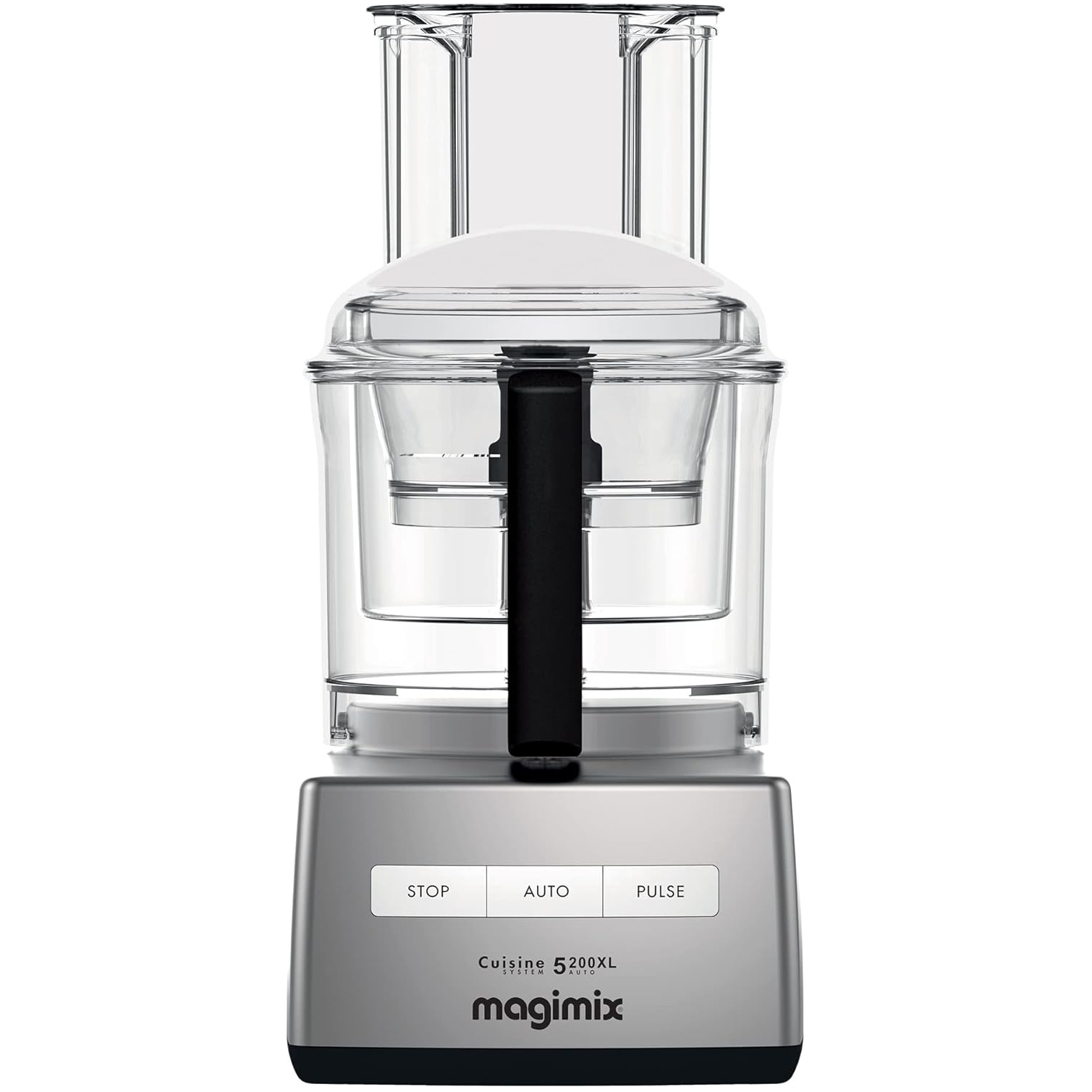
The OG food processor, this easy-to-use model from Magimix has three cups at different capacities to slice, dice and shred. We were very impressed by its powerful kneading and how evenly it sliced our potatoes.
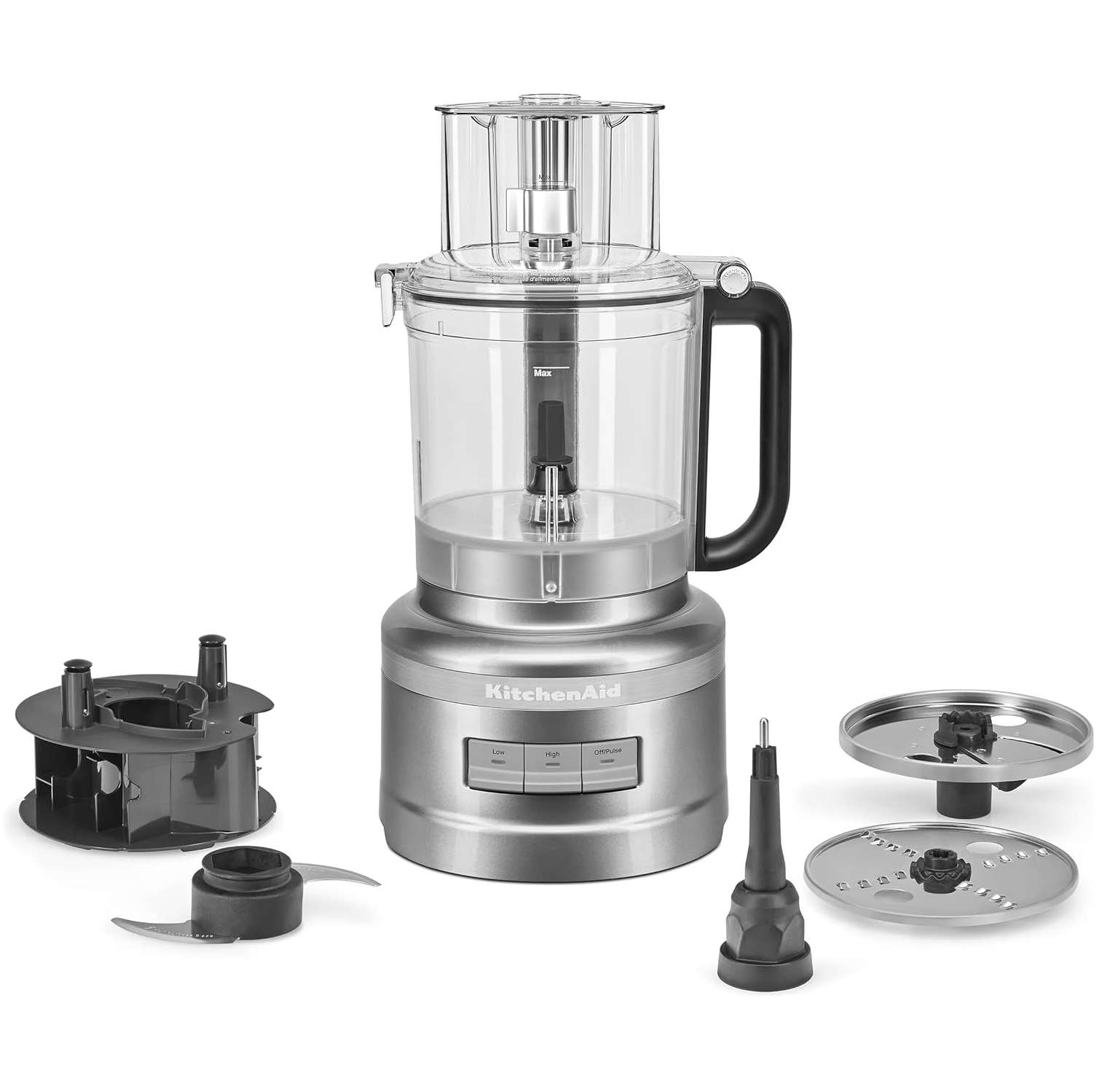
The hinged lid on this food processor makes for easy assembly, and its included carry case keeps all of its many attachments safely stored away.
The best food processors you can buy today
Why you can trust Tom's Guide
Best food processor overall
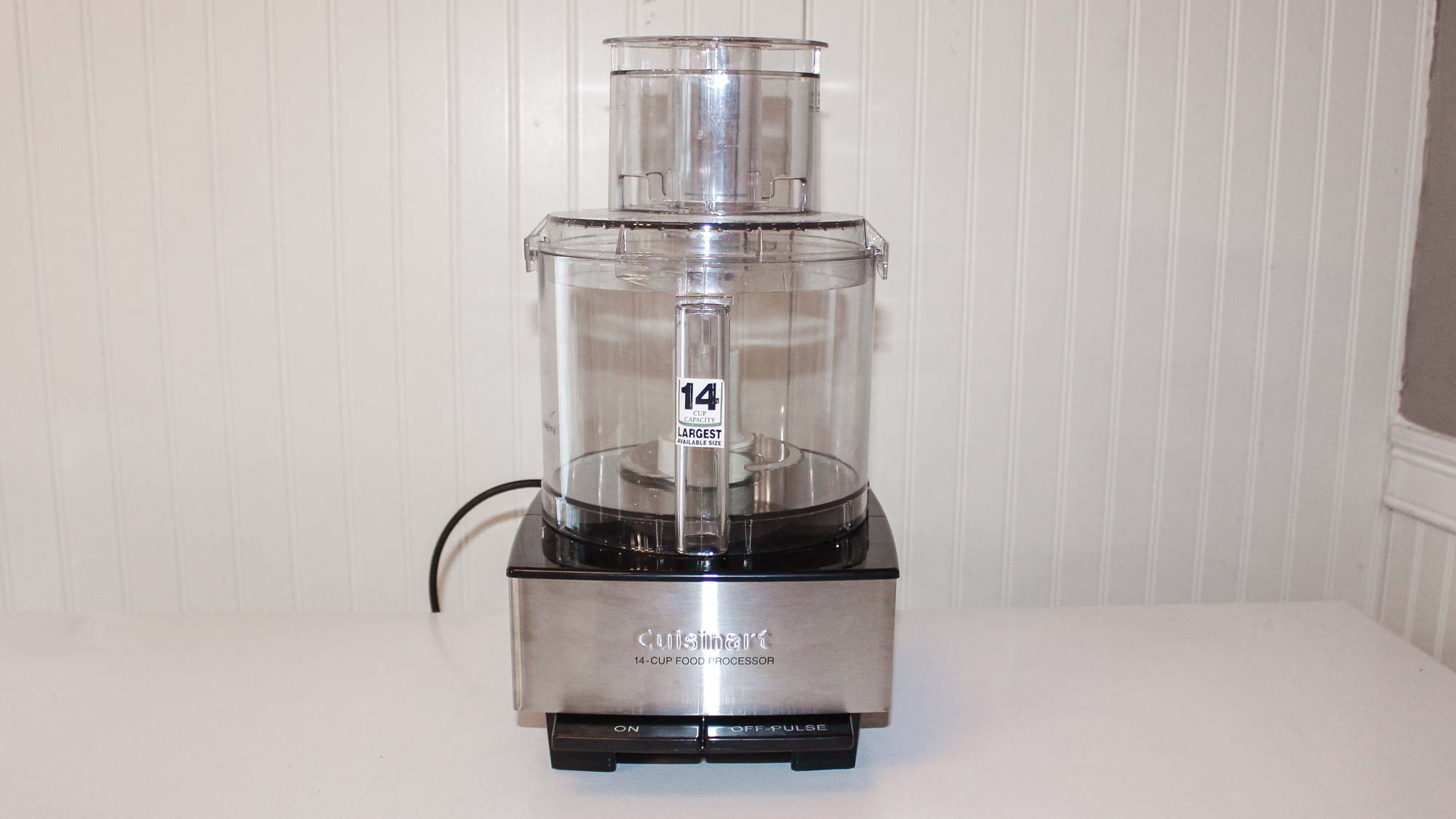
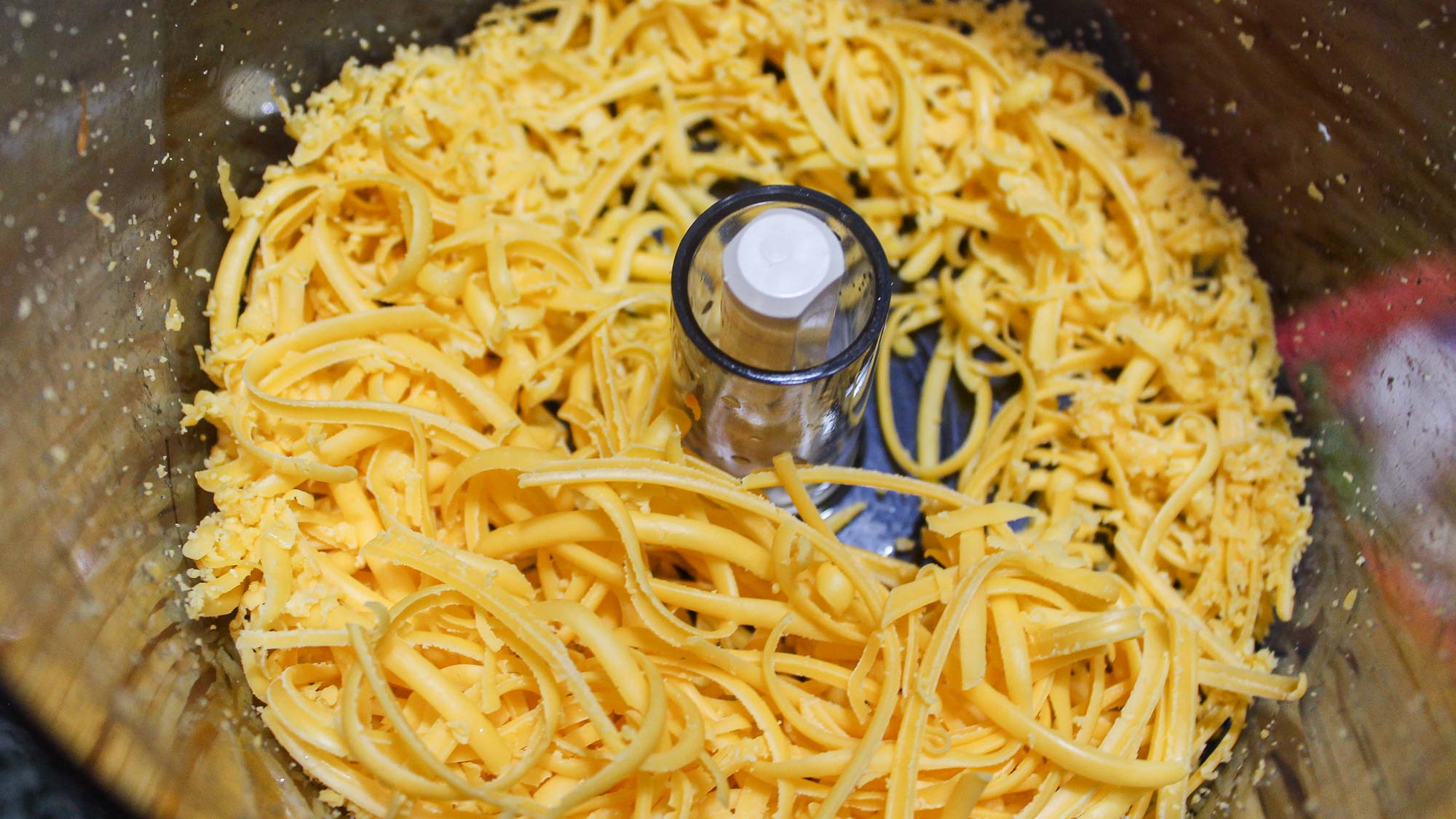
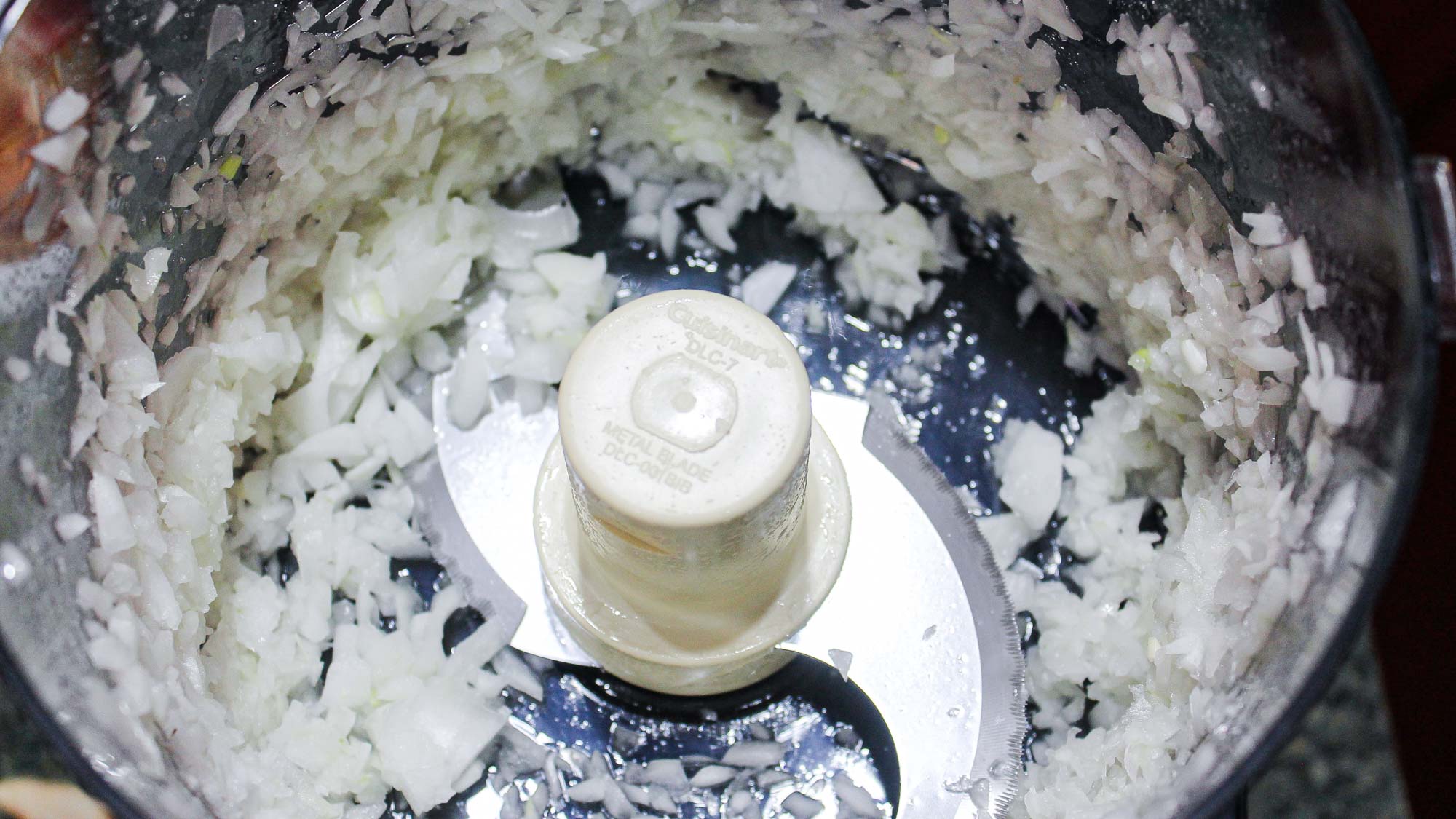
Specifications
Reasons to buy
Reasons to avoid
The Cuisinart 14 Cup Custom Food Processor is an absolute classic in kitchens across America. It's got a generous 14-cup capacity which easily handles even large batches of cookie dough, which the machine’s powerful motor quickly and efficiently mixed with no strain or difficulty on test. This food processor easily chopped onions, pureed hummus, grated cheese, and sliced both potatoes and carrots. What’s more, it’s one of the few machines that handled all of those tests with a consistently impressive performance.
While this food processor is powerful, it’s also the quietest of all of the models we tested, registering just 65.2 dBA while in use. At 20 pounds, it’s heavy, but that weight also gives it stability while in use. Two large buttons make for an easy operation, and the bowl locks in at the front of the machine, ideal for both left-handed and right-handed operators.
It perhaps doesn't pack the charm of a more stylish option like the Breville ParaDice or Magimix, but it's undeniably strong in performance and won't let you down.
Read our full Cuisinart 14 Cup Custom Food Processor review.
Best value food processor
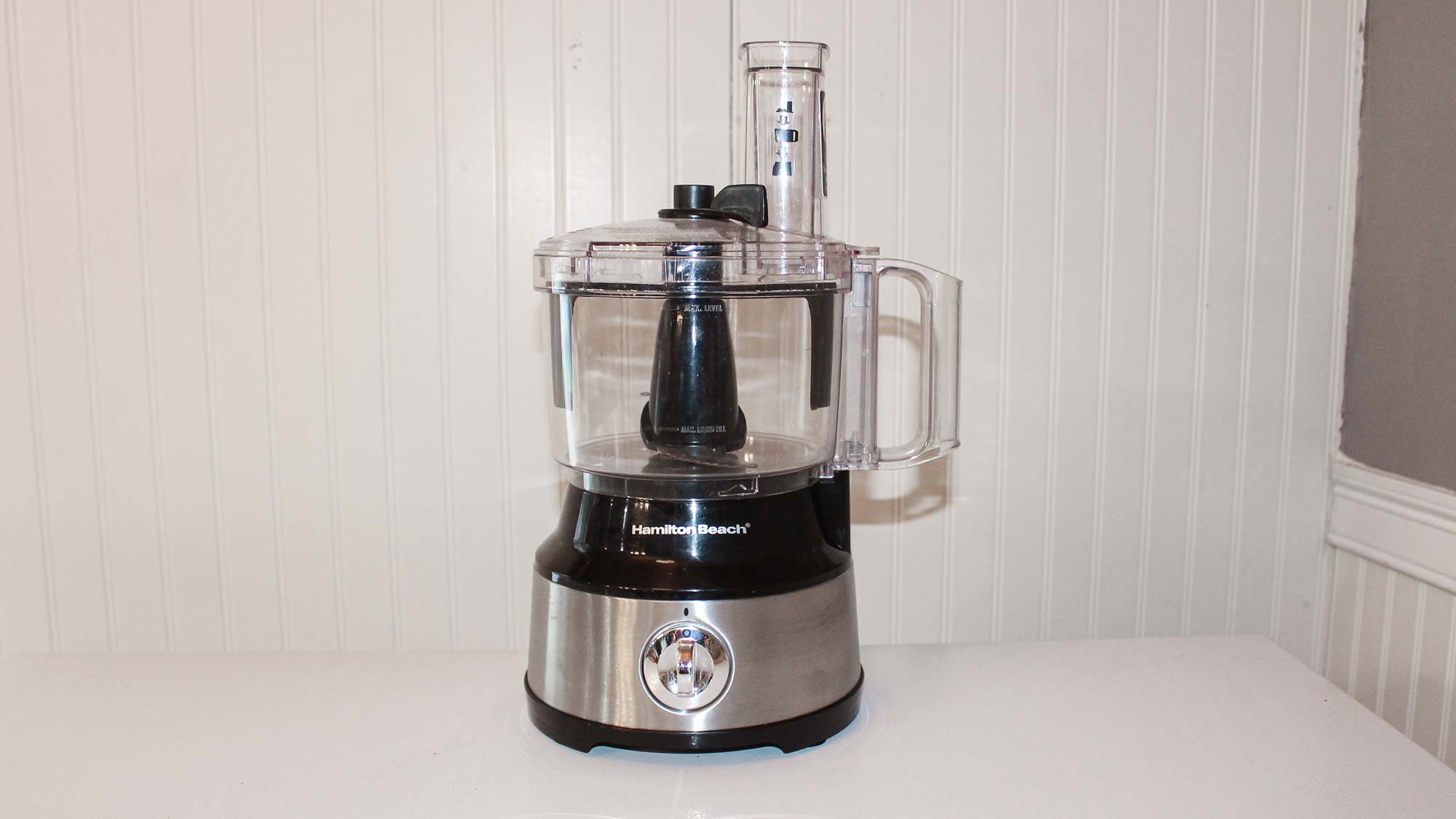
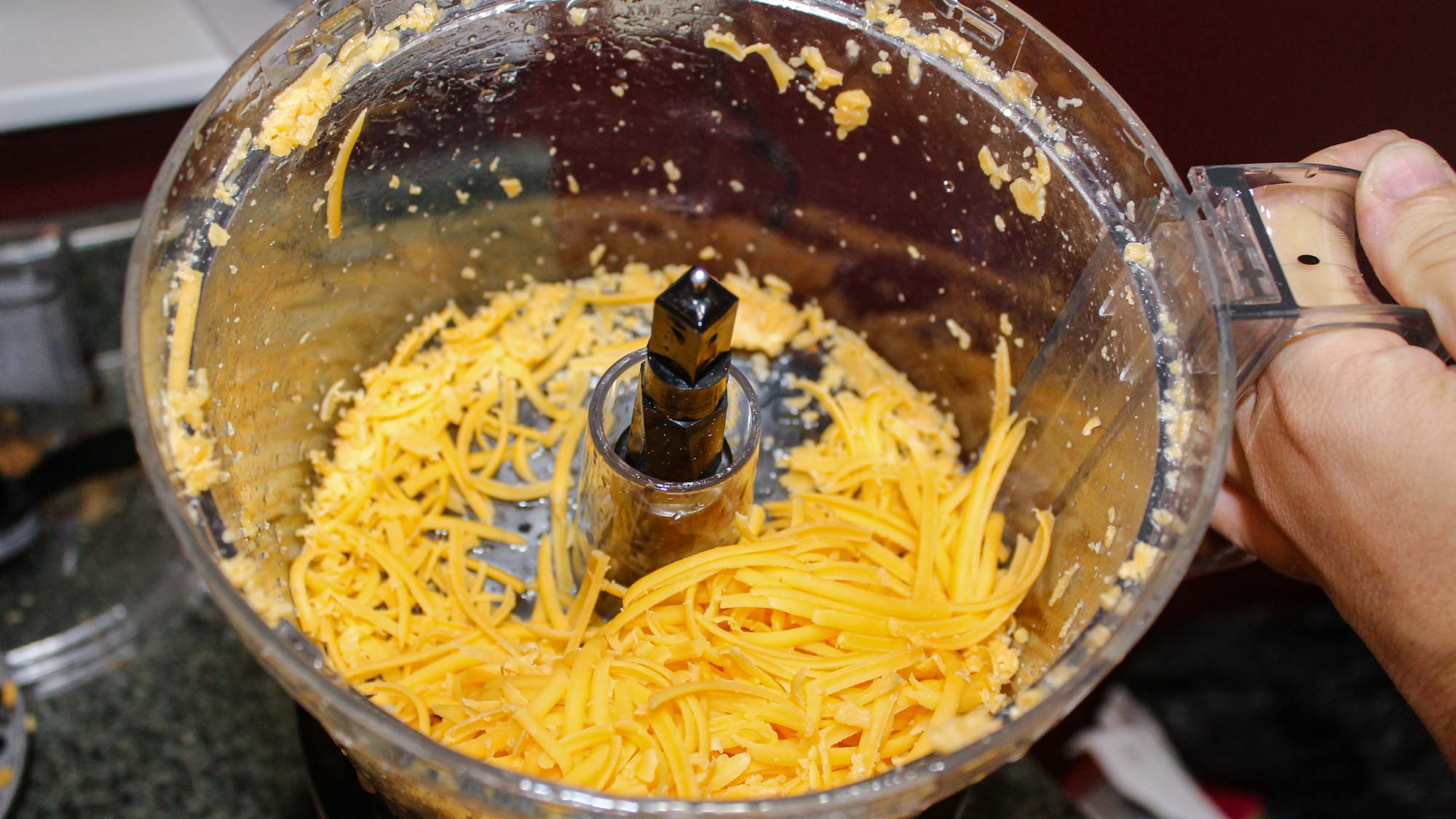
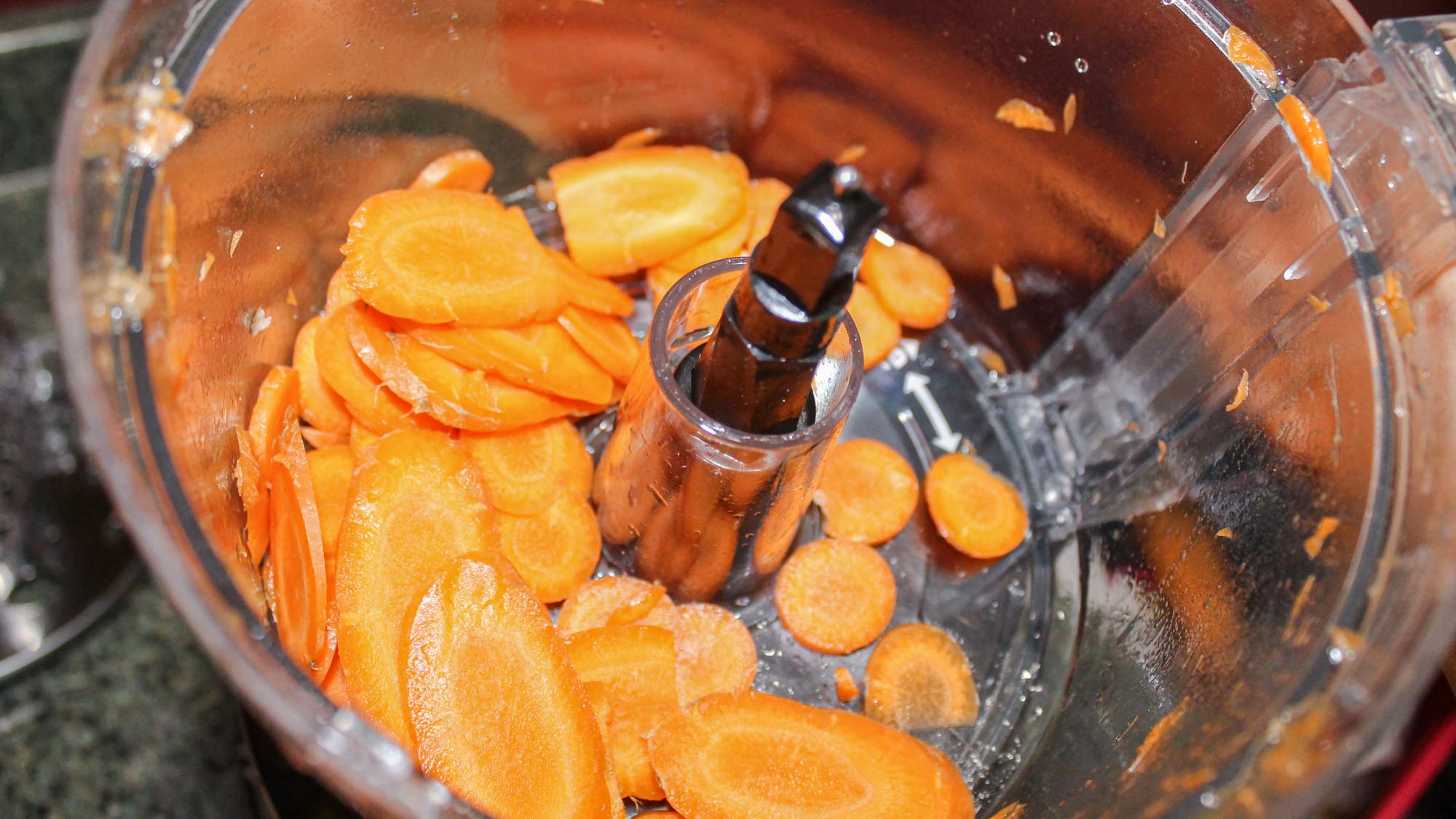
Specifications
Reasons to buy
Reasons to avoid
The Hamilton Beach Bowl Scraper 10 Cup Food Processor is designed with convenience and your wallet in mind. Its scraping disc saves you the time of having to open the lid and manually scrape the sides when chopping foods or making dishes like guacamole. This machine also features an extra-large feed chute that was large enough to accommodate a whole potato and a block of cheese.
It was plenty powerful and easily pureed hummus — it was so strong, in fact, that it splattered the mixture all over the lid. That power chopped an entire onion in three seconds, and sliced a carrot in just four seconds. The machine also easily handled cookie dough, mixing it well and consistently.
Priced at just $54.99, this food processor offers excellent value and is a great choice if you’re looking for a machine for quick food prep tasks. It did register 93.9 dBA, making it one of the loudest machines we tested, however. It also only comes with a chopping blade and slicing disc, so its versatility is limited.
Read our full Hamilton Beach Bowl Scraper 10 Cup Food Processor review.
Most versatile food processor
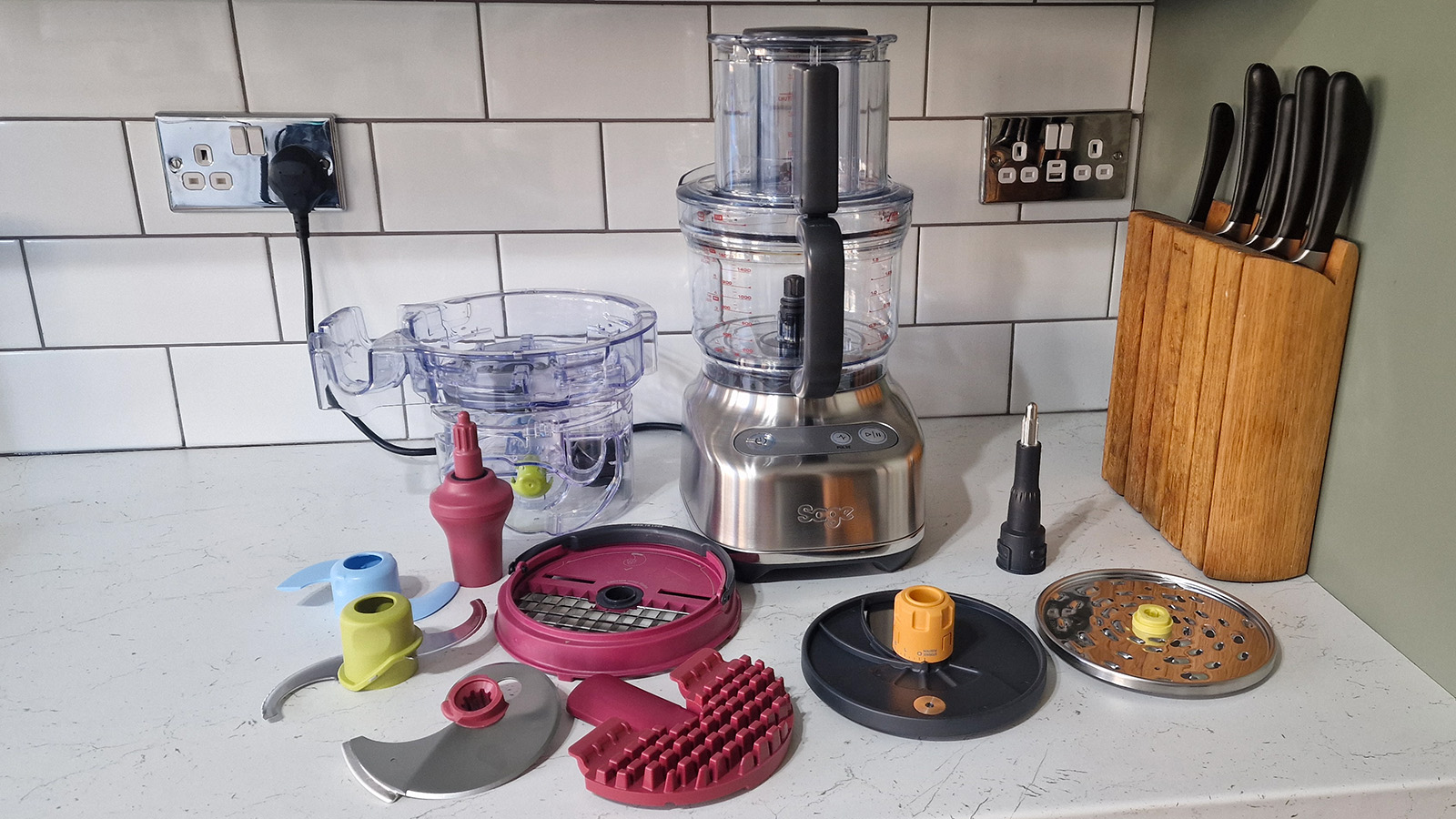
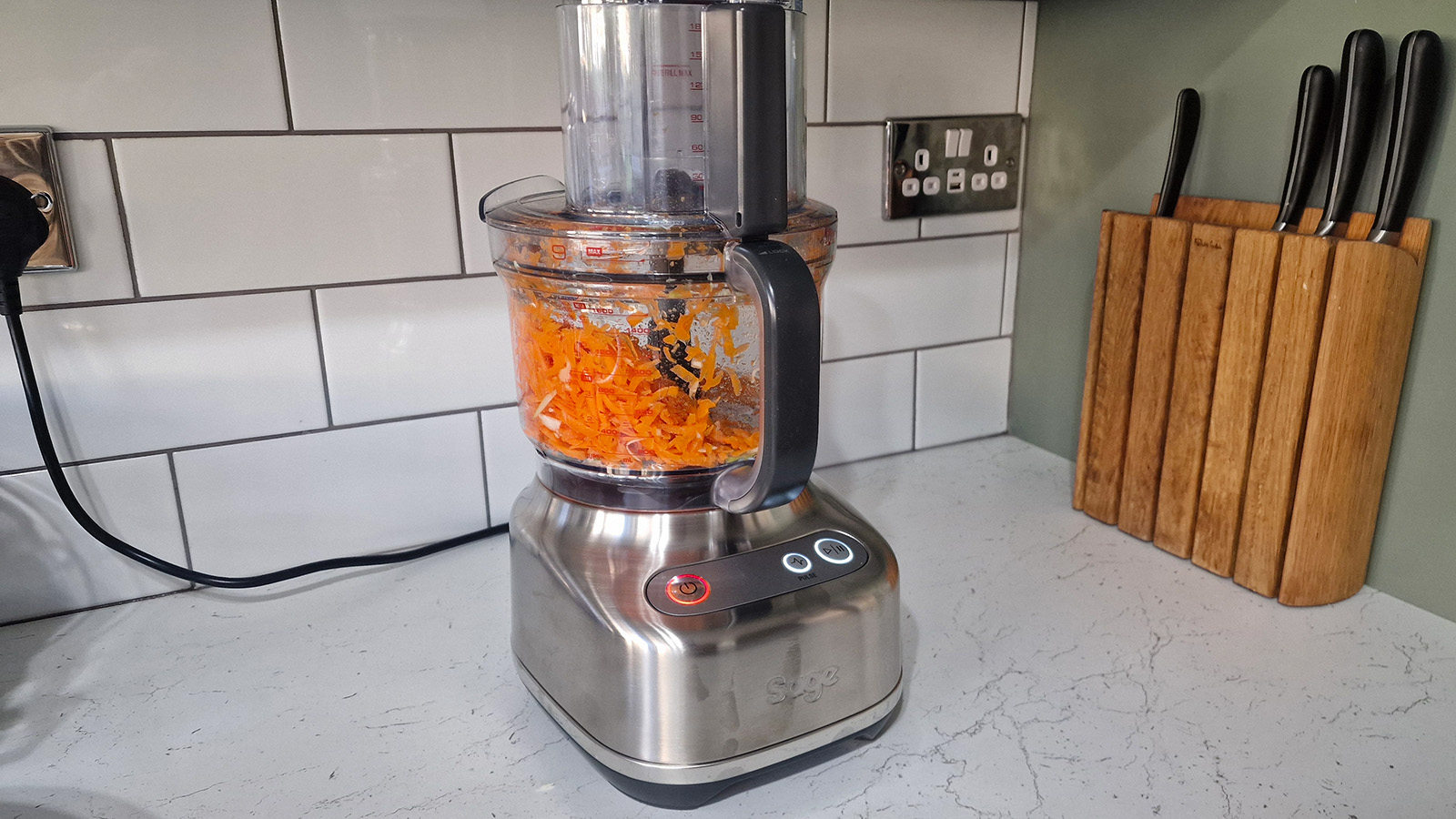
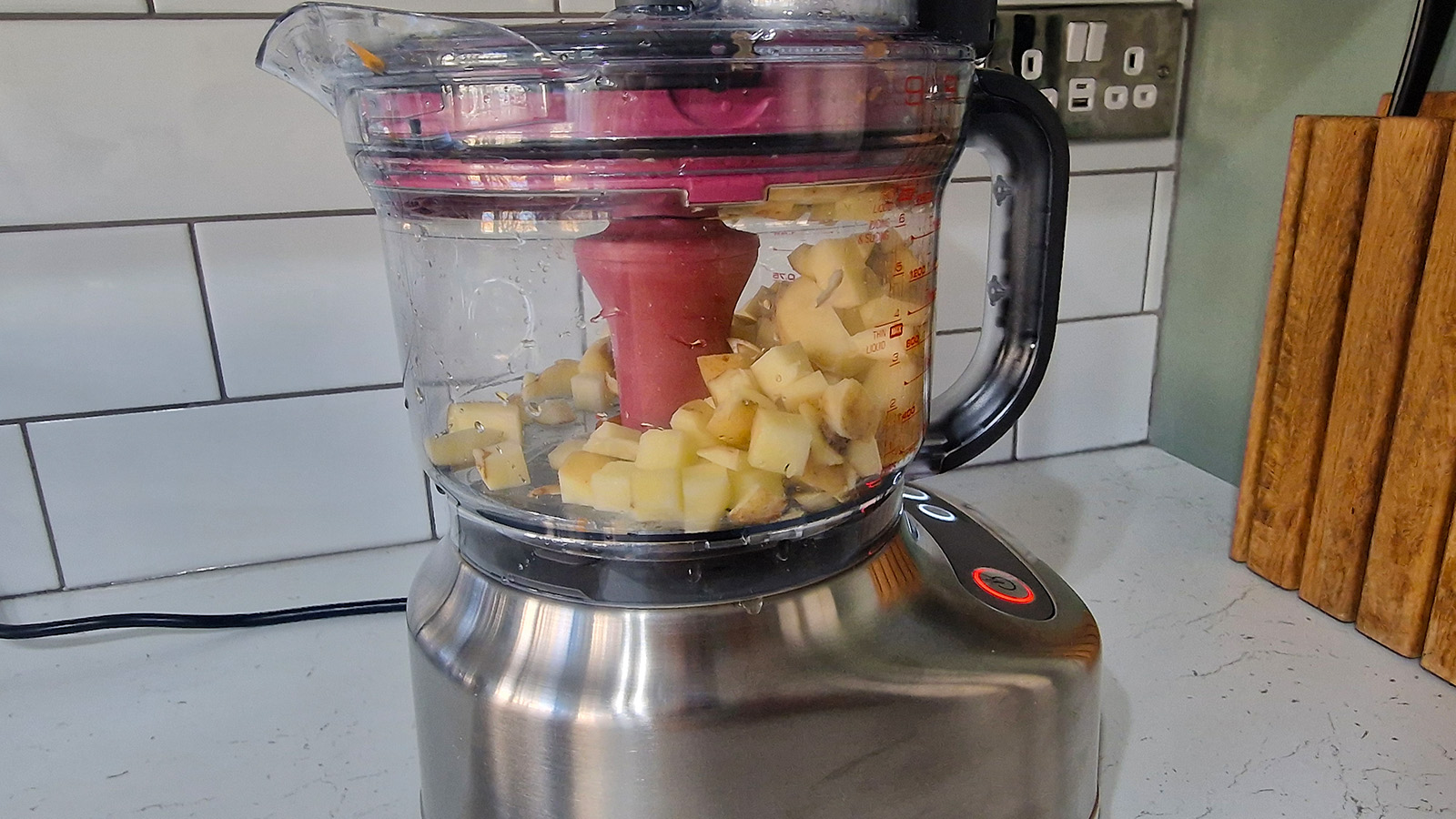
Specifications
Reasons to buy
Reasons to avoid
The Breville Paradice 9 can do it all. The smaller version of another of our favorite processors, the Breville Paradice 16, the Paradice 9 cuts down on the power for a big reduction in price. It's much less bulky than the larger machine, coming in at eight times lighter than the larger Paradice 16 without compromising on performance.
It comes with several attachments, and unlike the Paradice 16, they all fit in the bowl, making this much easier to store. They work well, too, with excellent performance on a bean dip. After testing it for a year, we found that it can make a week's worth of coleslaw in seconds, and it does a good job of dicing potatoes.
The only real drawback with this machine is that it's smaller than others we've tried, and the dicing process isn't perfect, as some cubes of potatoes get stuck in the attachment, and the included pusher doesn't always push them through.
Read our full Breville Paradice 9 review.
Best compact food processor
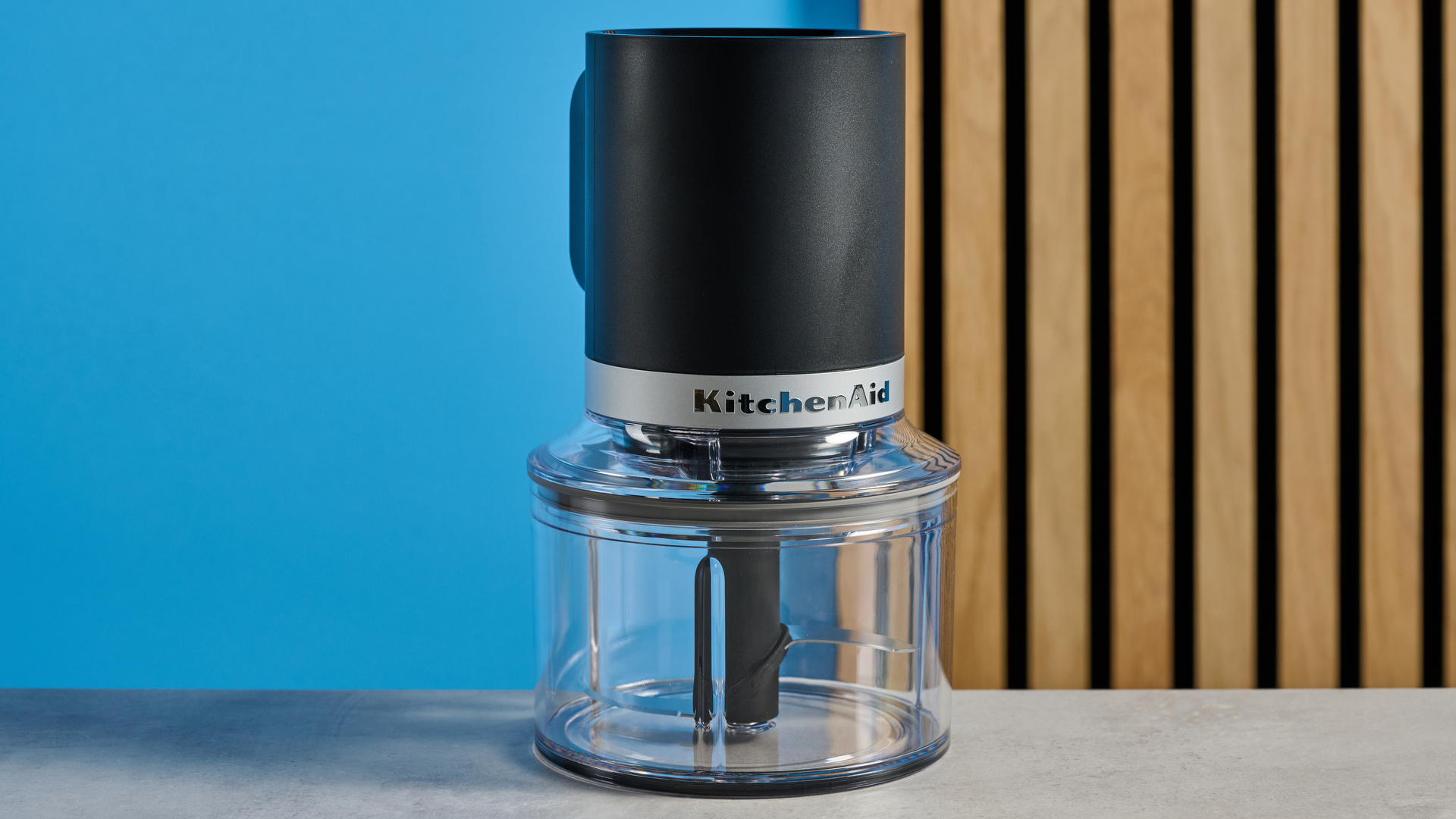
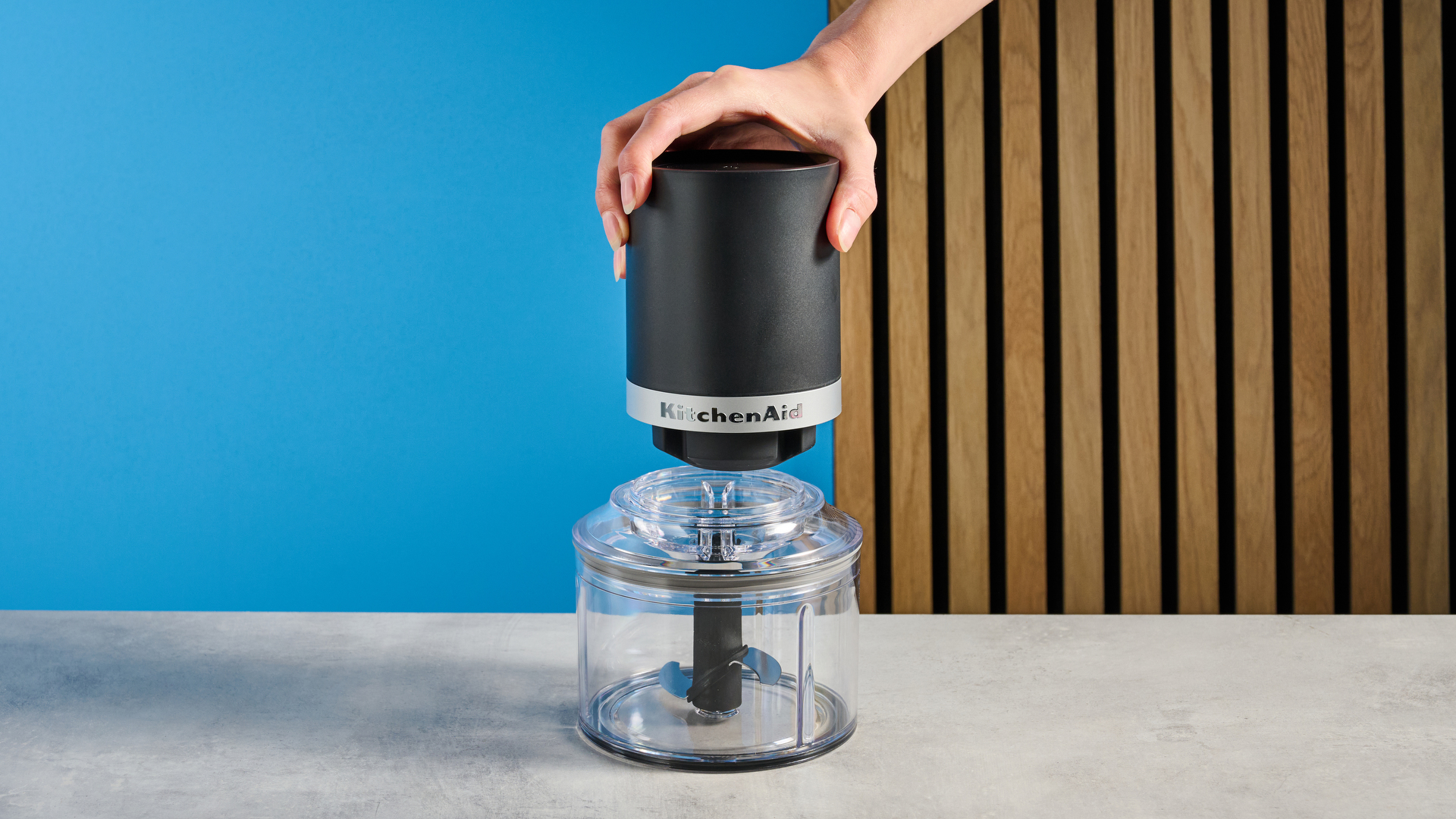
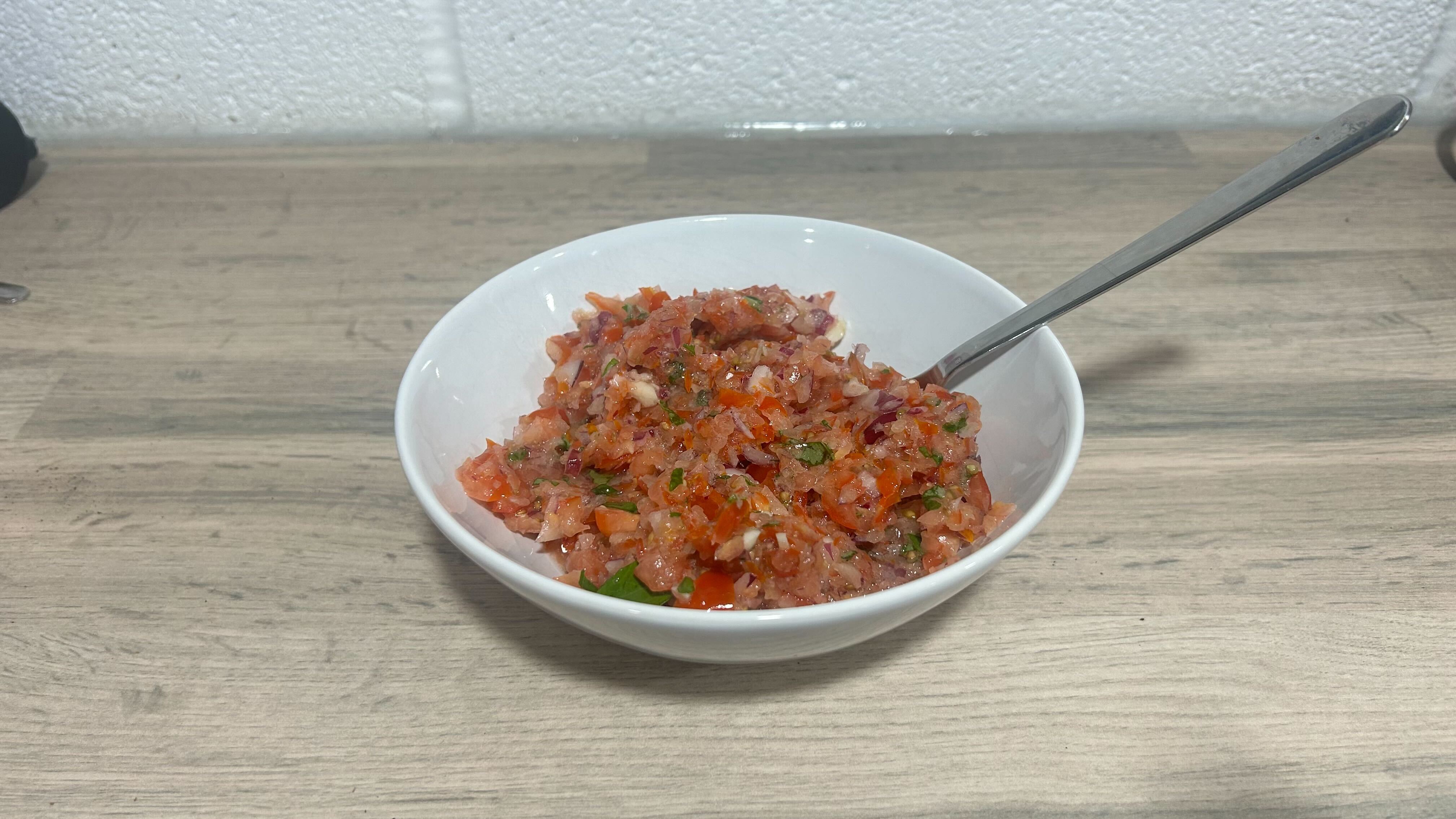
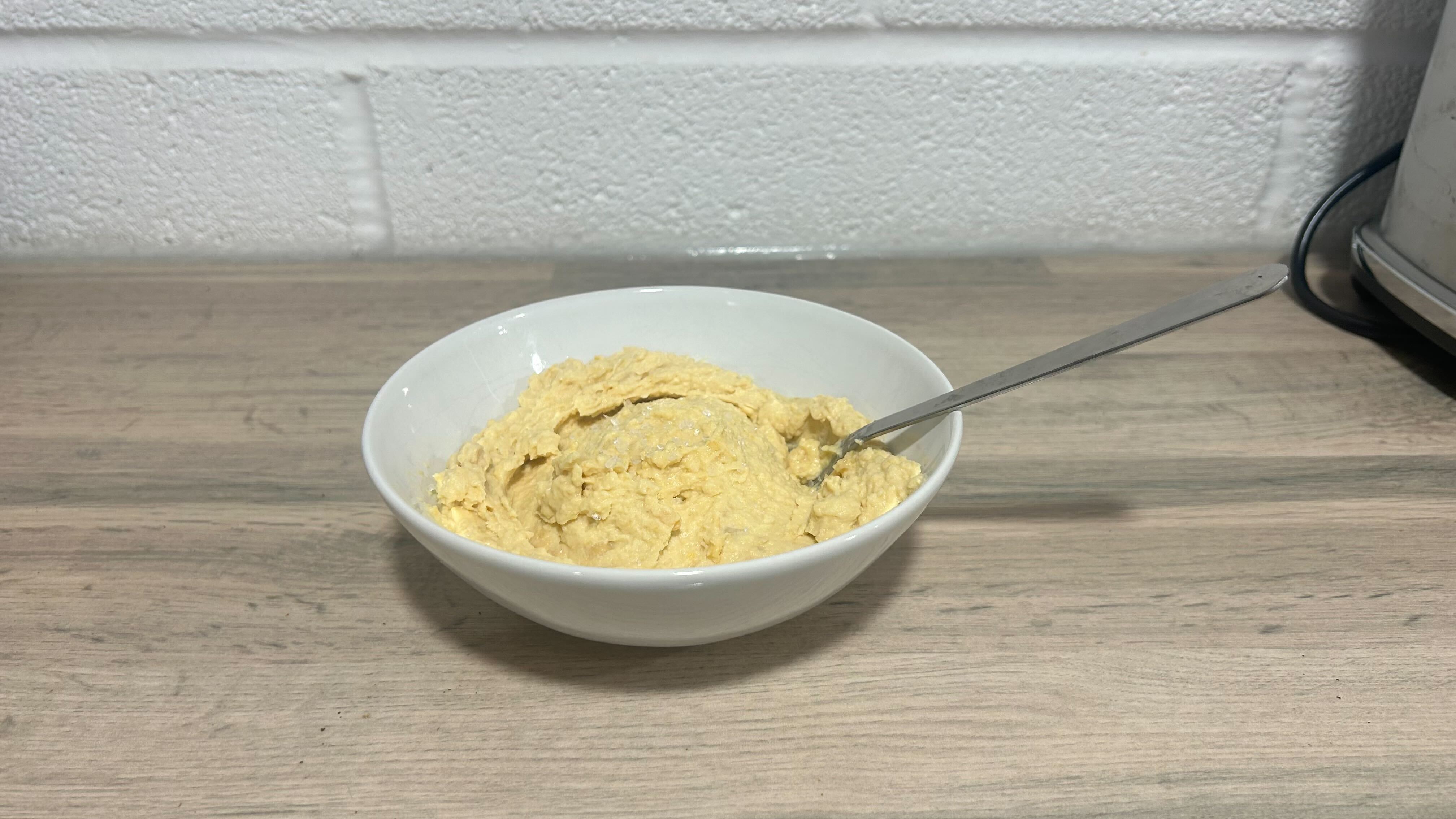
Specifications
Reasons to buy
Reasons to avoid
The KitchenAid Cordless Top Down Food Chopper can't compete with the other processors here for size or power. However, this little food chopper is great for processing small quantities of food.
The big draw here is that this is cordless, so it's great for moving around small kitchens. It's also a great option when grilling. It means you can quickly make dips and sauces out in the yard rather than awkwardly prepping them in the kitchen. If you've got the perfect carne asada on the grill and think it needs a touch of freshness from a pico de gallo or salsa fresca, this processor will quickly deliver what you need.
On test, it made a perfect salsa roja in seconds, though it struggled with the slightly heavier ingredients in guacamole and hummus. It delivered decent chopped carrots for a sofritto, too.
If you need something for mixing dough or mincing meat, you have to look elsewhere. For a chopping some onions every now and then, or making homemade sauces and relishes, this food chopper is very useful.
Read the full KitchenAid Cordless Top Down Food Chopper review.
Most durable food processor
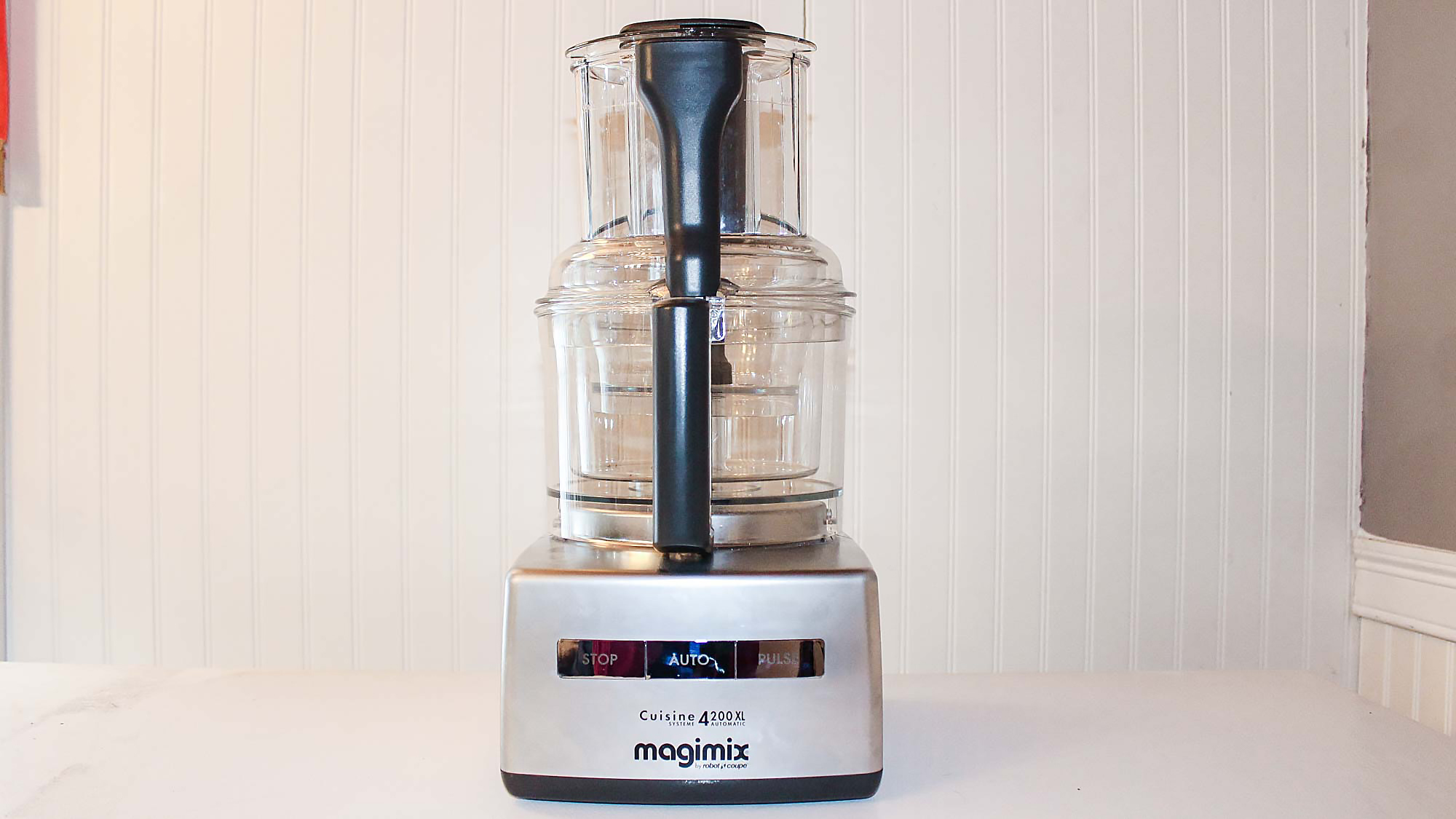
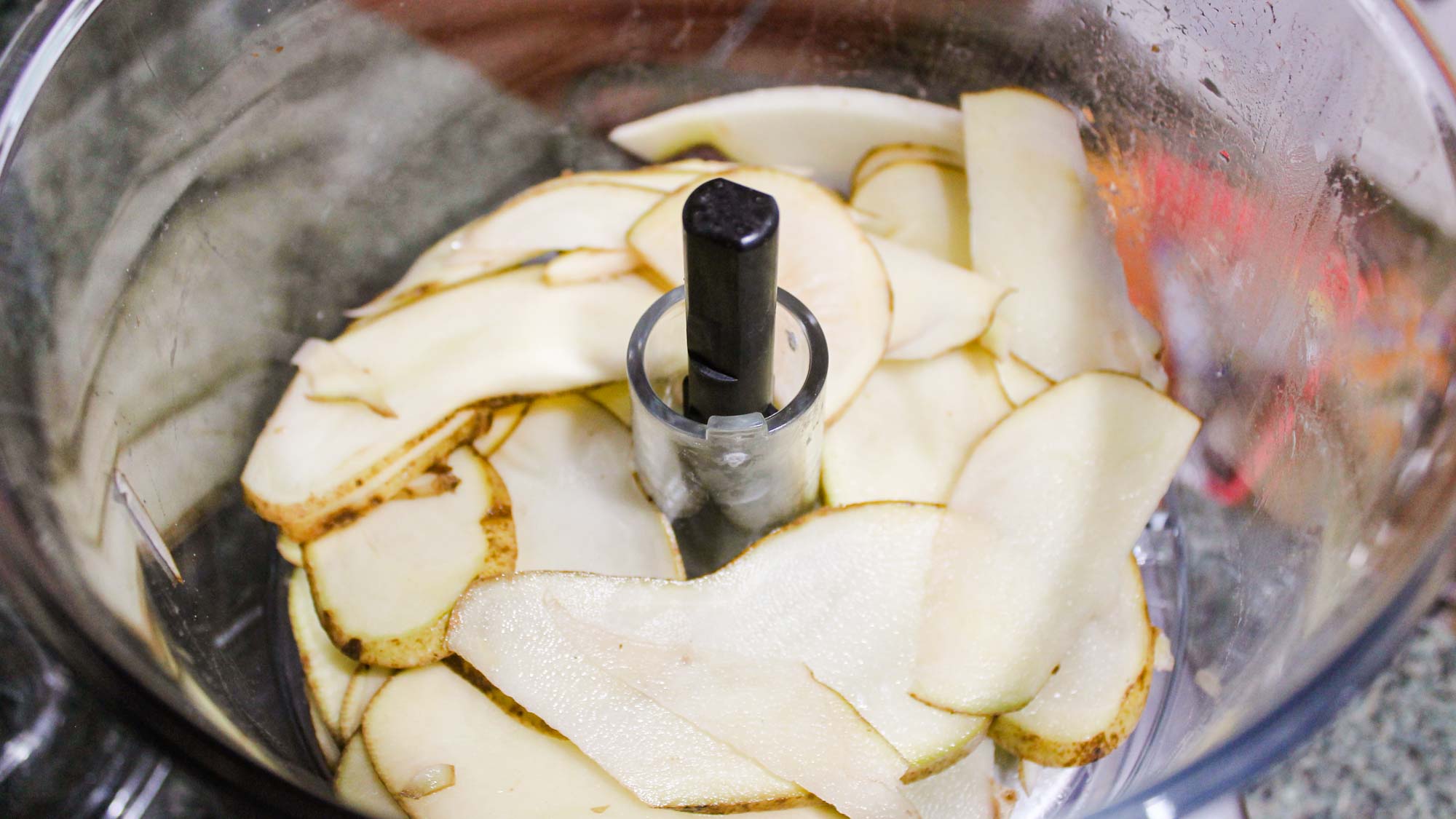
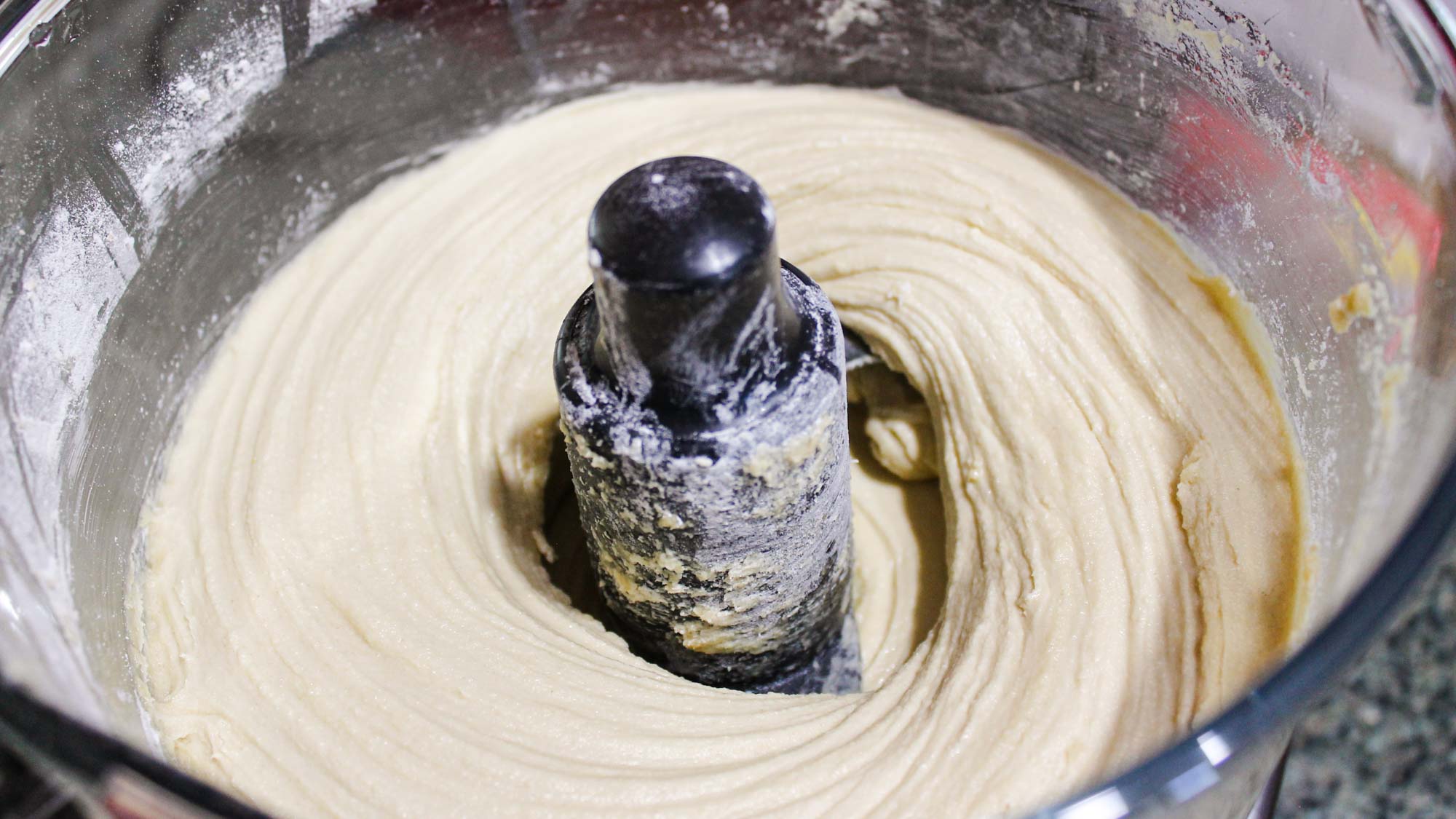
Specifications
Reasons to buy
Reasons to avoid
Magimix produced the first domestic food processor in 1971, and it brings that same innovation and quality to the Magimix Food Processor 14 Cup model, the sturdiest food processor we tested. This food processor’s appeal is in its versatility. Its 14-cup capacity is capable of larger food preparation jobs, but the inclusion of additional 6-cup and 12-cup bowls allow for smaller food preparation, too. This food processor comes with a generous assortment of accessories, including two metal blades, a dough blade, two grating discs, two slicing discs, an egg whisk, and spatula, which fit easily into the compact storage box.
This food processor’s performance was impressive across every test. The extra-large feed tube was large enough to handle a whole russet potato, and its stainless steel blades made short work of potatoes and carrots. It pureed hummus into a soft, fine mixture, and the dough blade easily and thoroughly combined cookie dough. While this food processor’s motor was powerful, it was also quiet, registering just 79.2 dBA. If you’re looking to get the best food processor to last a lifetime, then this is the one.
Read our full Magimix Food Processor 14 Cup review.
Best food processor for slicing
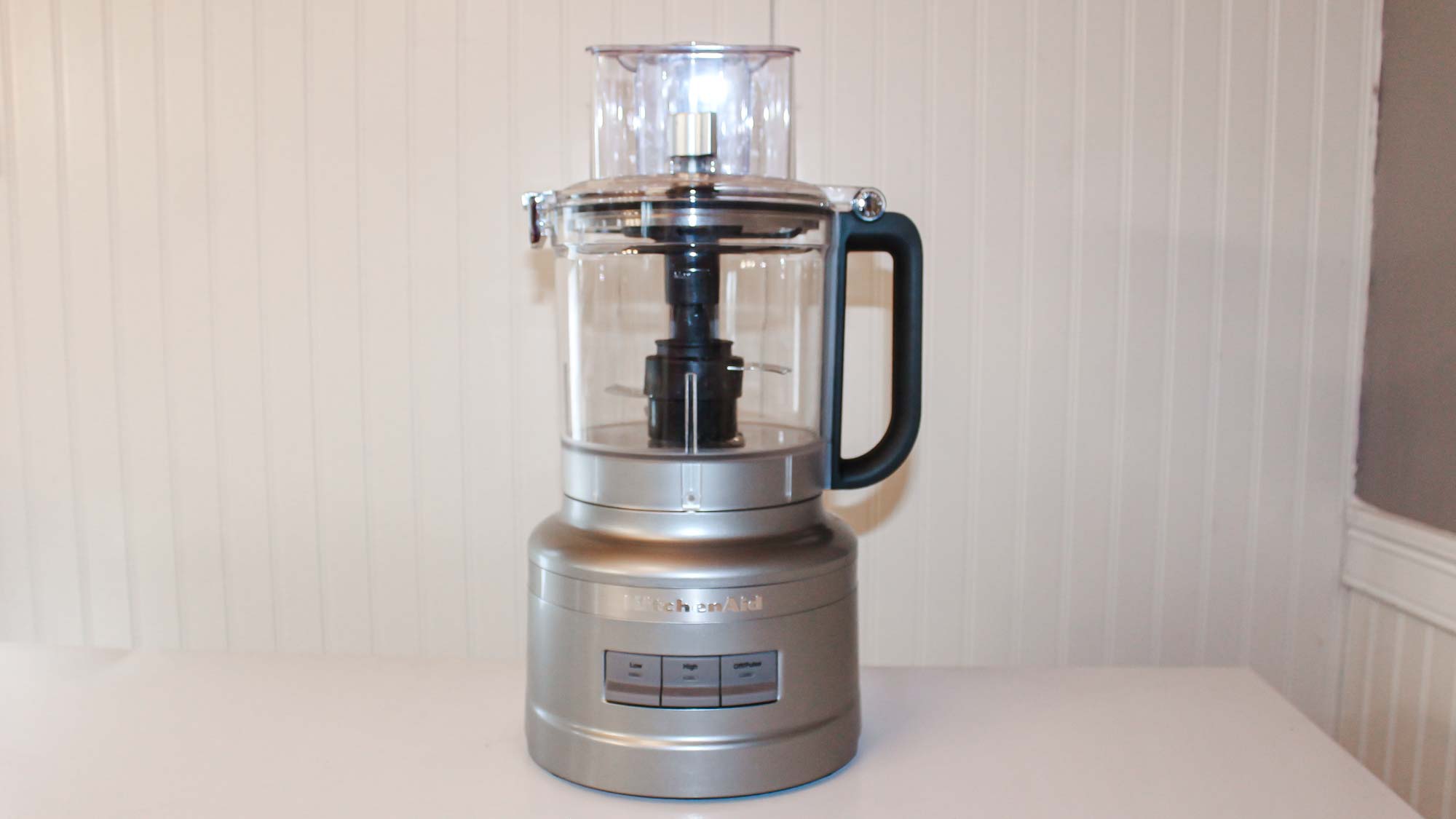
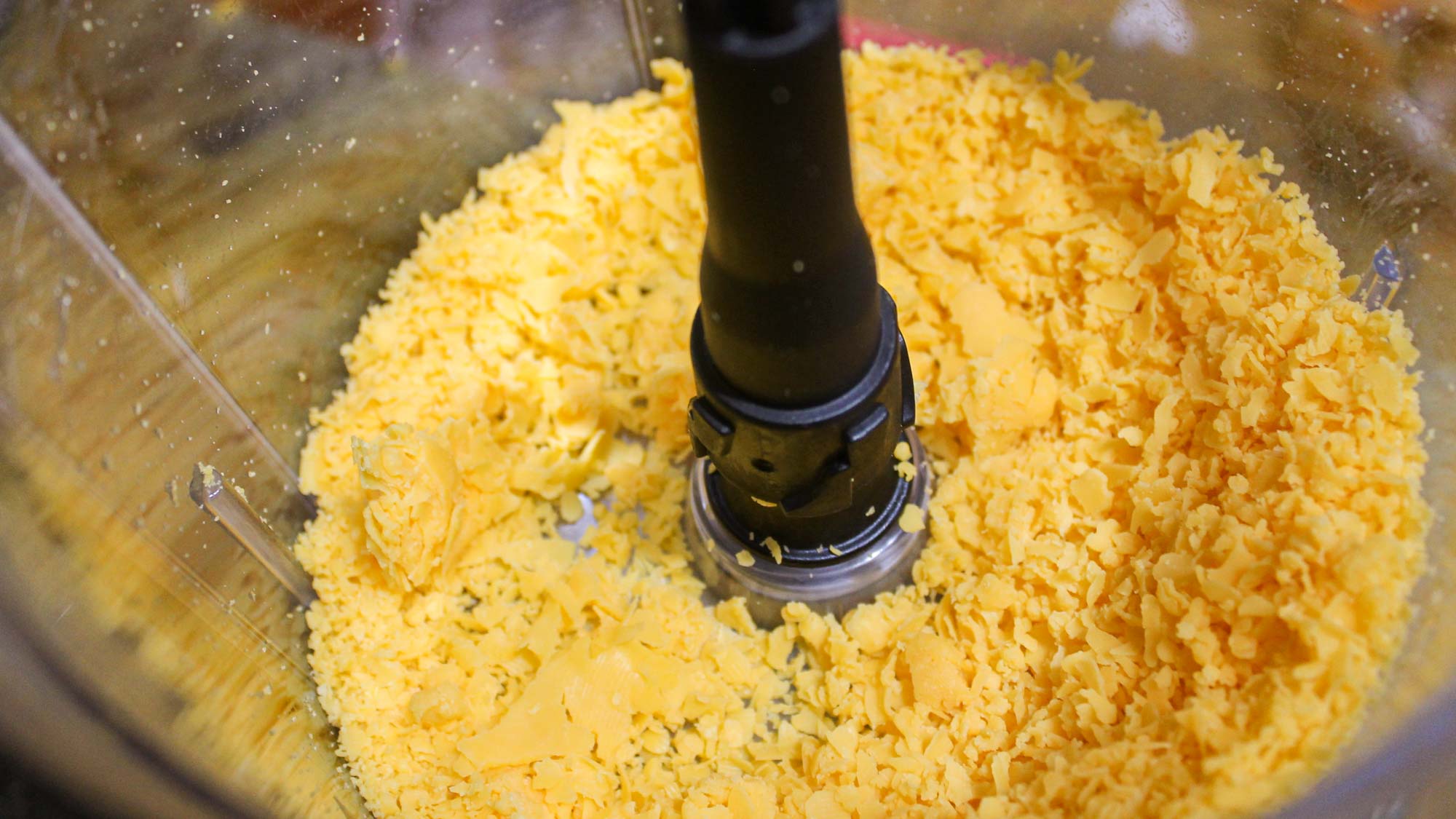
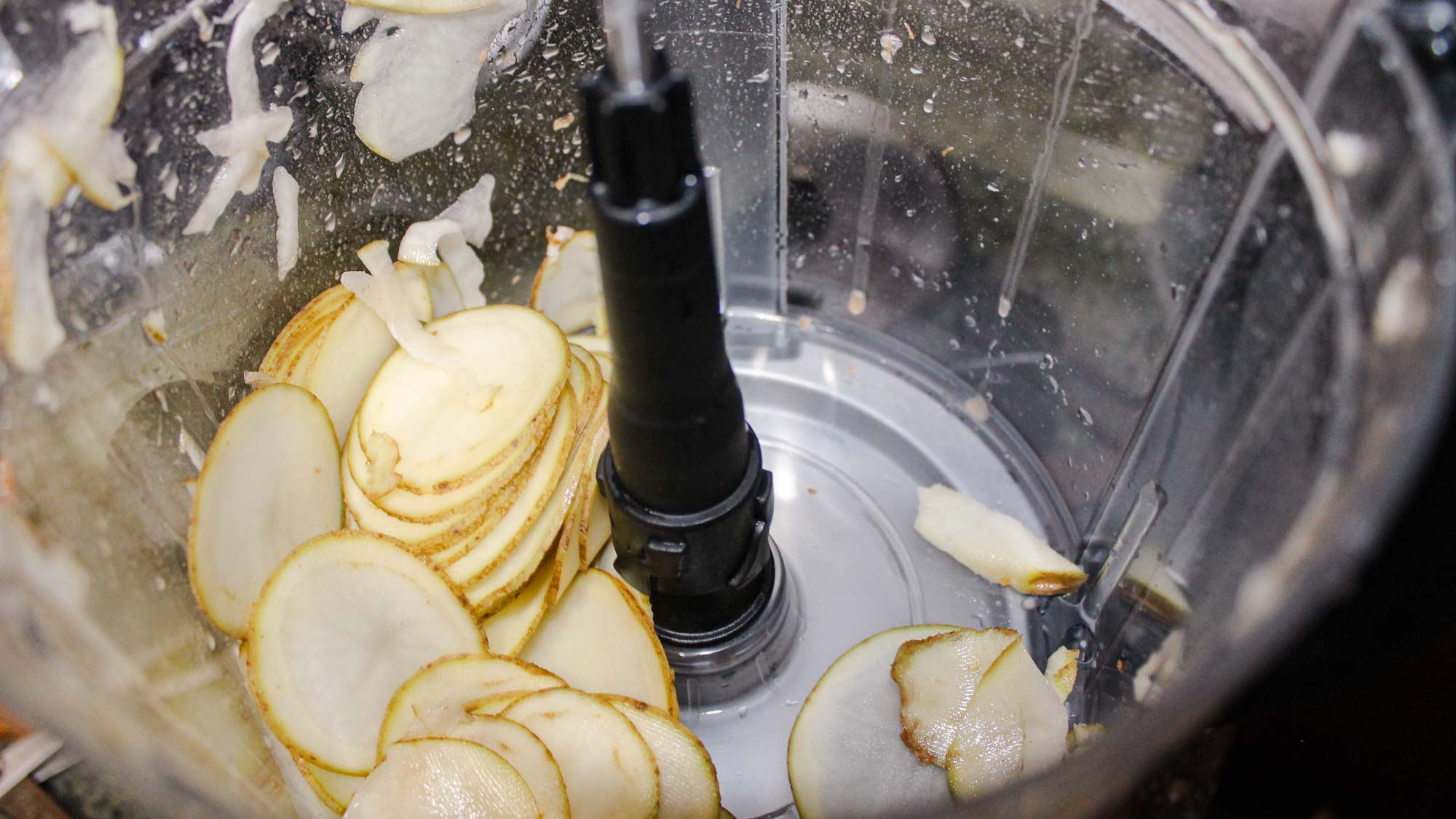
Specifications
Reasons to buy
Reasons to avoid
The KitchenAid 13 Cup Food Processor features a unique design that makes it easy to assemble. Rather than having to attach the bowl and then the lid, this food processor’s lid fits onto the bowl with a hinge, and then secures down with a lock. This means you can access the inside effortlessly. When it’s time to clean it, you can fully remove the lid for thorough washing. The bowl locks onto the base by just placing it down onto it — no twisting required.
The machine’s large capacity made it difficult to thoroughly mix dough and to puree hummus. However, it performed well when grating cheese, chopping onions, and slicing potatoes and carrots. It reached 82.3 dBA in use, making it a quieter choice than some other models, and comes with low, high, and pulse settings, which gives you more control over this unit than others. It’s not the best food processor if you regularly make small dishes, but a good model overall.
Read our full KitchenAid 13 Cup Food Processor review.
Also tested
We've tested lots of food processors over the years, but not all of them can be the very best.
However, after making hundreds of cups of hummus, coleslaw, and salsa, there are some processors that could be right for your kitchen.
We've tried a huge 40-pound processor and a tiny food chopper that could be a better fit than the products above, which are exceptional but might not be the right fit.
Here are some recently-tested processors that are still worth considering.
Breville Paradice 16 (★★★★⯪)
This machine has two boxes worth of attachments for slicing, dicing, shredding and even chipping potatoes to make french fries. It made some of the smoothest hummus we've ever tasted in our years of reviewing these gadgets, and the in-built timer is also incredibly useful for recipes that come with specific timing instructions, such as mixing or kneading-based recipes. However, it's incredibly expensive, and this huge 40lbs processor and its attachments take up a lot of room in storage.
Read our full Breville Paradice 16 review.
Breville Sous Chef 12 Cup Food Processor (★★★★⯪)
This food processor is simple to use. It powered through every test with ease, a testament to its 1,000-watt motor. Slicing through potato and carrot was easy and consistent, it made for consistent, well-grated cheese well and thoroughly blended cookie dough. However, it's not as versatile as others we tested, lacking the generous assortment of accessories of the Magimix Food Processor 14 Cup.
Read the full Breville Sous Chef 12 Cup Food Processor review.
GE 12 Cup Food Processor (★★★★☆)
The GE 12 Cup Food Processor performed well in most of our tests. It easily and consistently sliced through potato and carrot, though we had to slice the potato in half to fit it in the relatively small feed chute. It chopped an onion well in 12 seconds, and the cookie dough was well-mixed. However, it lacks a specific dough blade, and the bowl is so large that it couldn’t effectively puree hummus. However, it’s a good choice for larger preparation jobs, and it’s easy to clean up.
Read our full GE 12 Cup Food Processor review.
Cuisinart Elemental 8 Cup Food Processor (★★★★☆)
The Cuisinart Elemental 8 Cup Food Processor may be one of the more economical options we tested, but it put in a quality performance. Its smaller capacity allowed it to easily puree hummus, and it thoroughly mixed cookie dough. It also efficiently grated cheese, though some was pushed up into the lid. However, it has a less powerful motor than larger models, so it may have more trouble with tougher recipes.
Read our full Cuisinart Elemental 8 Cup Food Processor review.
Ninja Professional Food Processor (★★★★☆)
The Ninja Professional Food Processor is one of the more versatile models we tested. Its nine-cup capacity makes it suitable for most food prep, and it easily accommodates a batch of cookie dough. It includes many accessories, but its automatic shutoff means it couldn't run for long enough to puree hummus or mix dough. It was also one of the loudest processors we've tested at 93.8 dBA. However, its versatility and overall performance still make it great value for money at under $100.
Read our full Ninja Professional Food Processor review.
Hamilton Beach 12 Cup Stack and Snap Food Processor (★★★★☆)
This machine has an easy-snap on lid and bowl that saves a lot of time compared to other food processors. It chopped an onion well and mixed cookie dough thoroughly and evenly. It has a versatile range of attachments but their function is a little inconsistent. While it’s not the right step-up if you’re looking to upgrade an existing food processor, it's good value and and simple to use.
Read our full Hamilton Beach 12 Cup Stack and Snap Food Processor review.
KitchenAid 3.5 Cup Food Chopper (★★★⯪☆)
Ideal for whizzing up speedy dips or blitzing onions and carrots for a sauce base, this processor won't be able to handle larger servings, but it's ideal for small homes or two-people households who may find one of the larger options in this guide overkill. Noise was incredibly inoffensive and the design light and portable, but it doesn't slice like many food processors do.
Read the full KitchenAid 3.5 Cup Food Chopper review
How we tested the best food processors

Millie has been testing food processors for 5 years. Although she's a keen home cook, she's always looking for ways to make mealtime easier and more efficient, and the best food processors tick all of these boxes.
Although she does a lot of testing in Tom's Guide's test kitchen, Millie's kitchen at home is quite small, so she regularly uses her five-cup food processor to chop onions or make compound butters for two-person meals.
We put a range of food processors through a variety of demanding tests to evaluate their overall performance, design and quality. To start, we sliced whole potatoes and carrots to assess the performance on hard everyday vegetables, and then we grated a ⅓-pound block of cheese, to see how consistently each grated and how much waste was left behind. We also chopped onions and pureed hummus, to assess the power, and then we mixed a batch of cookie dough in each food processor, which was one of the hardest tests because of its thick, sticky texture.
During each test, we looked for consistency, both in terms of chopping and slicing, and we wanted a thorough blend on the hummus and cookie dough tests. We monitored how easily each machine handled the ingredients, as well as the speed with which they completed the tests. We also made note of any difficulties that we faced.
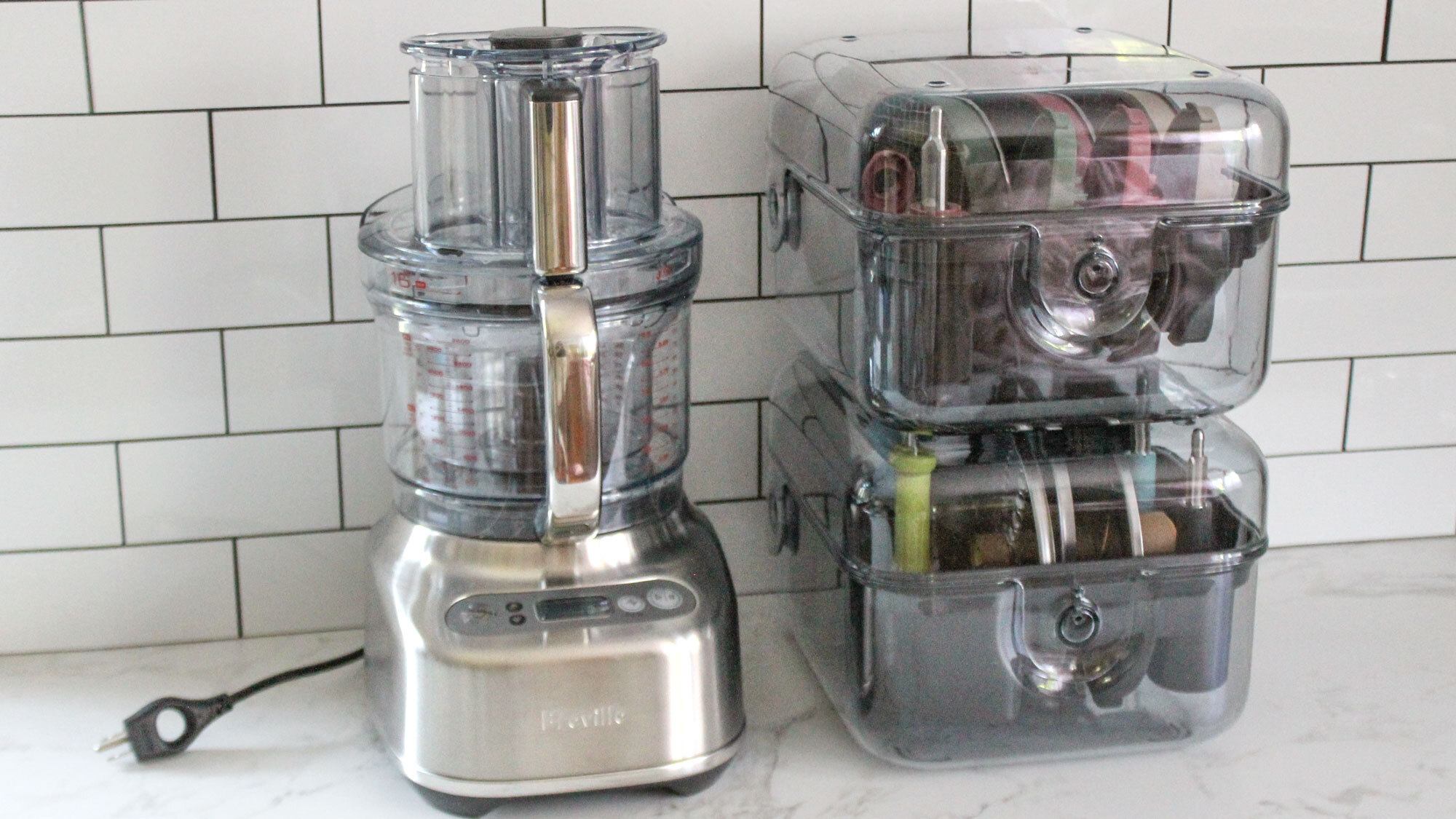
Next, we filled up each food processor with water and ran it to test for leakage. None of the models we tested had any leaks, which is good news. We also assessed the noise of each while in operation with a sound reader. Finally, we evaluated any additional elements, like how easily the machines can be cleaned and the effectiveness of any accessories that contribute to their performance or versatility.
We also tested some food processors that don't feature in our guide because their performance wasn't on par with the rest of the models we tested. This includes the Oster Total Prep 10 Cup Food Processor and the Black + Decker 8 Cup Food Processor, both of which scored 3 stars in testing.
Food processor results
Model | Noise (dB) | Capacity (cups) |
KitchenAid 13 Cup Food Processor | 82.3 | 13 |
Cuisinart Elemental 8 Cup Food Processor | 83.4 | 8 |
Cuisinart 14 Cup Custom Food Processor | 65.2 | 14 |
KitchenAid 5 Cup Cordless Food Processor | 62.5 | 5 |
Hamilton Beach 12 Cup Stack and Snap Food Processor | 90.1 | 13 |
Breville Sous Chef 12 Cup Food Processor | 81.9 | 12 |
Magimix Food Processor 14 Cup | 79.2 | 14 |
Ninja Professional Food Processor | 93.8 | 9 |
Black + Decker 8 Cup Food Processor | 91.5 | 8 |
Oster Total Prep 10 Cup Food Processor | 93.4 | 10 |
GE 12 Cup Food Processor | 85 | 12 |
Hamilton Beach Bowl Scraper 10 Cup Food Processor - Black 70730 | 93.9 | 10 |
What to look for when buying a food processor
What's the difference between a good food processor and a great one? A quality processor should be able to take on whole fruits and vegetables with ease, without much time expenditure in between items. It should be safe to use and easy to store. Before you pull the trigger on a purchase, here are some features to keep top of mind.
Budget: This is always a good place to start, but remember, it's a wide range. Expect to spend anywhere from $20 to $50 on the low end for simple chopping machines and $200 to $400 — and up — for professional-grade devices. You get what you pay for, and that's not always a bad thing.
Size and type: Food processors come in a variety of styles but can generally be categorized as mini, compact or full size. Miniprocessors (i.e., "choppers") are adequate for dicing up one or two small items at a time and are easy to clean, but their usefulness is limited. The larger the food processor, the more versatile its capabilities. Premium processors come with larger storage containers, too, making them better for family-size meals.
Power: Again, it's a wide range. From 200 watts on the low end to 1,200 watts for premium models, larger machines draw the most juice. If you're shopping for a full-size machine, 500 watts or more should be enough to power through most food-processing jobs without a fuss. Weaker motors don't do a good job at uniform chopping/mixing, and they run the risk of burning out when overloaded.
Controls: While pricier machines may include LCD displays; countdown timers; and dedicated buttons for slicing/shredding, pureeing/mixing and pulsing, budget models offer less customization. If your food-processing needs are modest, though, one or two speeds is all you need.
Blade performance: Sharp blades are important, because they affect how evenly food is chopped, and some of them are reversible, increasing their functionality. Quality blades and grating disks should be super-sharp right out of the box and remain sharp for years to come.
Attachments: This is where you really need to pay attention. Different brands and models come with myriad attachments and accessories, but you're unlikely to use all of them all the time. Pick a food processor with a set of accessories that fits your lifestyle. That being said, here are a few useful add-ons we like:
Warranty: The more you spend, the longer the warranty should be. Expect one year for less expensive models and upward of three years for premium machines.
Get instant access to breaking news, the hottest reviews, great deals and helpful tips.

Millie is the Managing Editor of Homes at Tom's Guide. She's been reviewing home tech for over five years, testing everything from coffee makers to the latest vacuum cleaners.
With particular expertise in cookware and kitchen appliances, you'll struggle to find an air fryer Millie hasn't tested. She's traveled the world reporting on the latest home innovations and product launches, learning how to use pizza ovens from Pizzaiolos in Naples, and touring the De'Longhi factory in Venice. Millie is also an SCA-Certified barista.
When she's not reporting on home and appliance trends, Millie loves watching live music. She's currently learning the guitar - naturally, she plays a Fender.
 Club Benefits
Club Benefits





